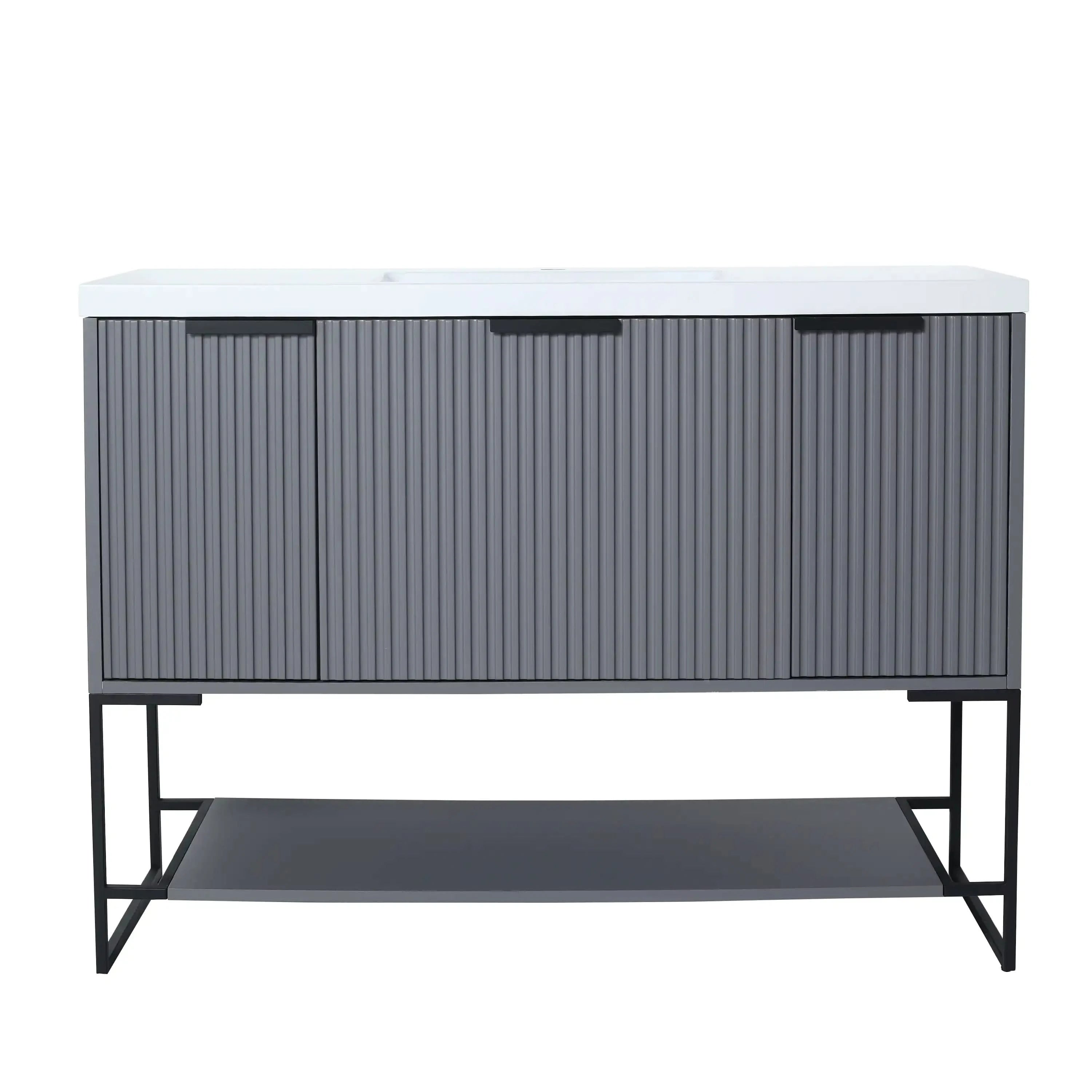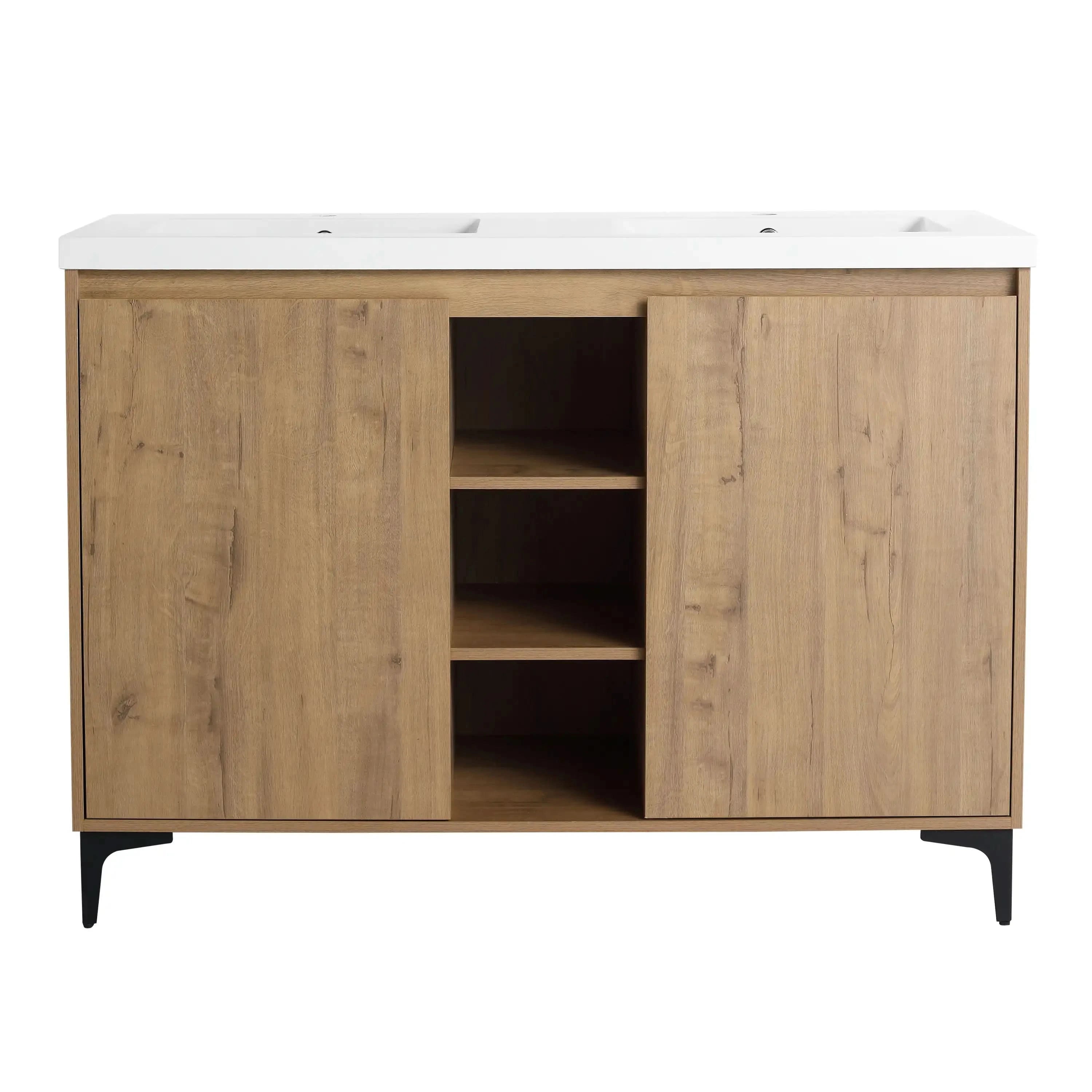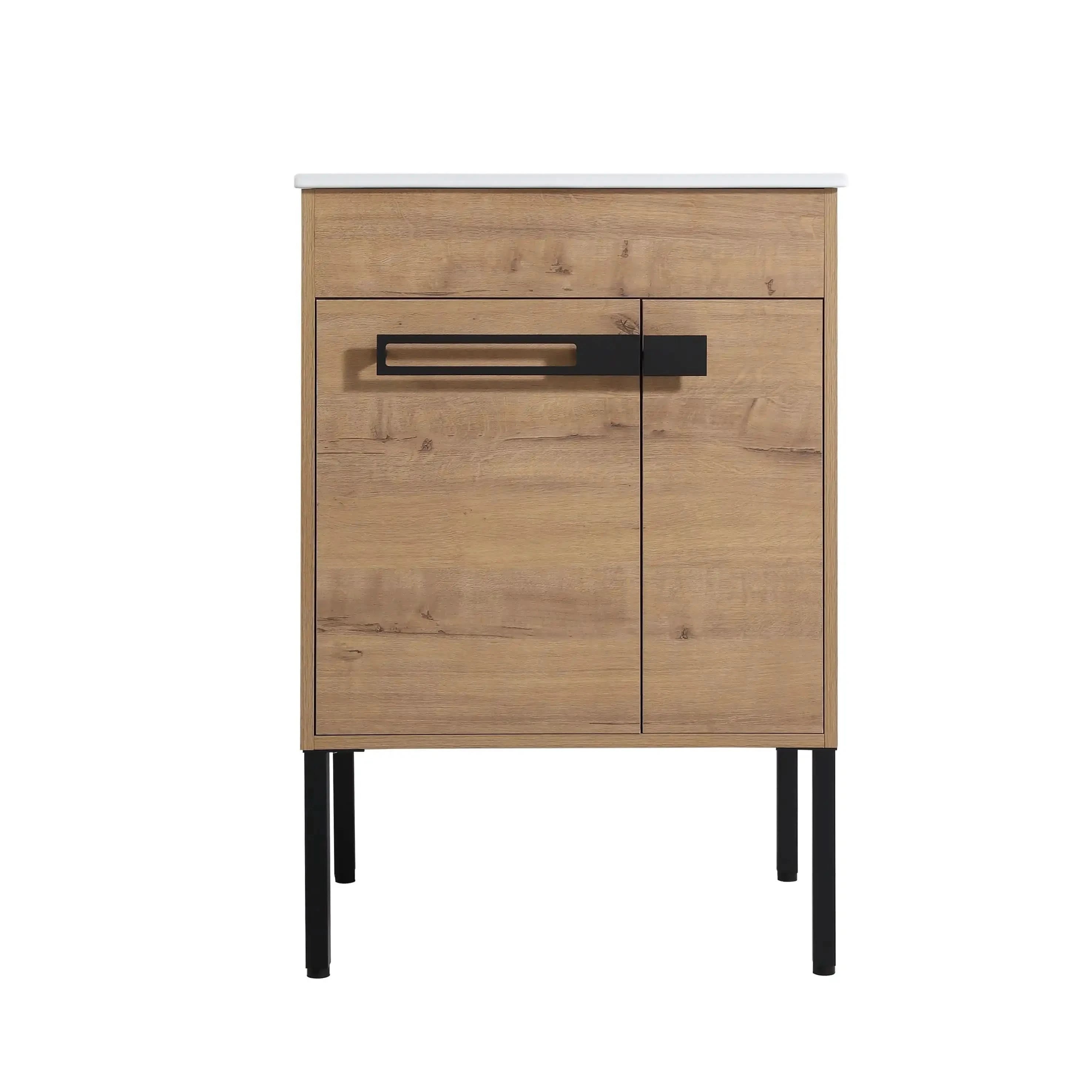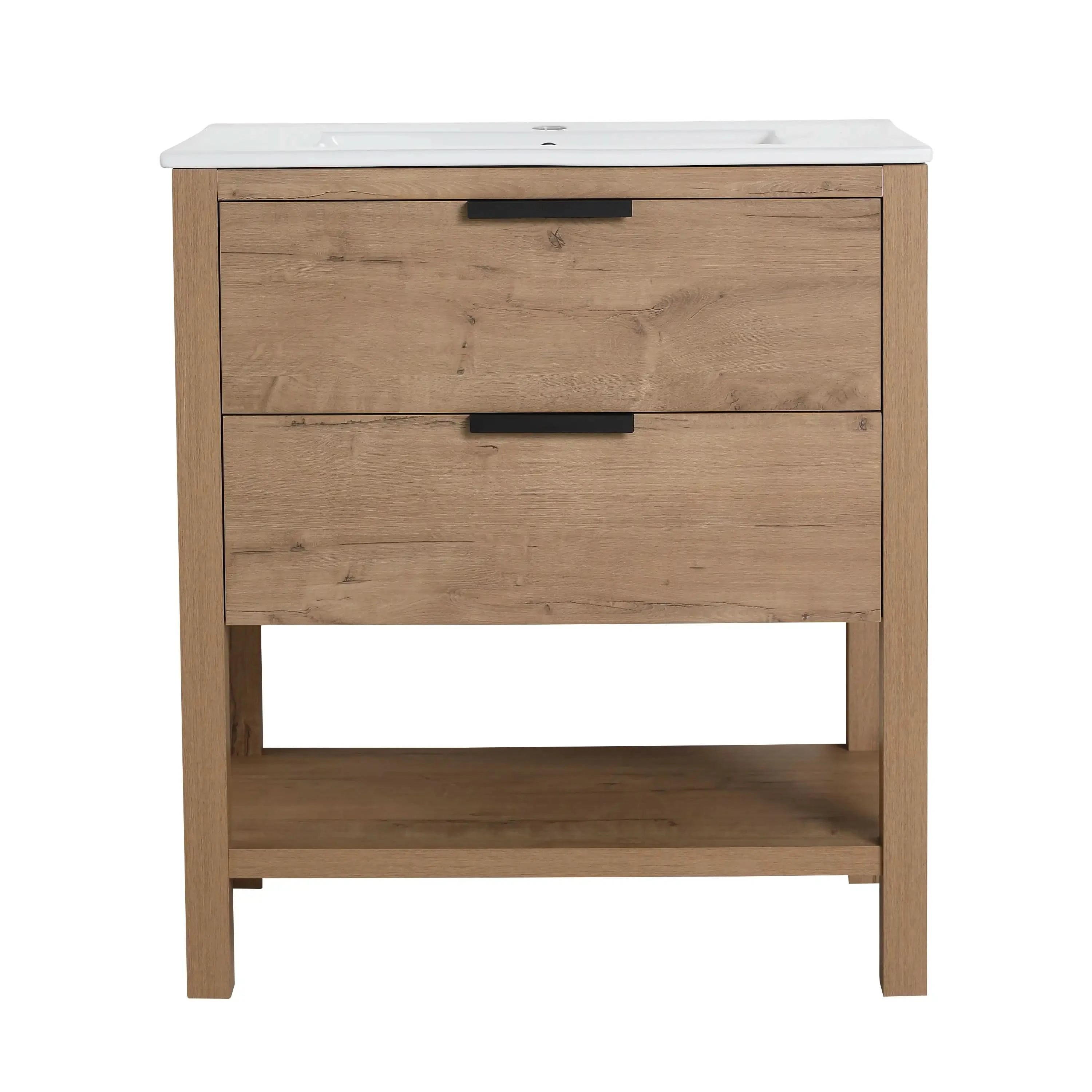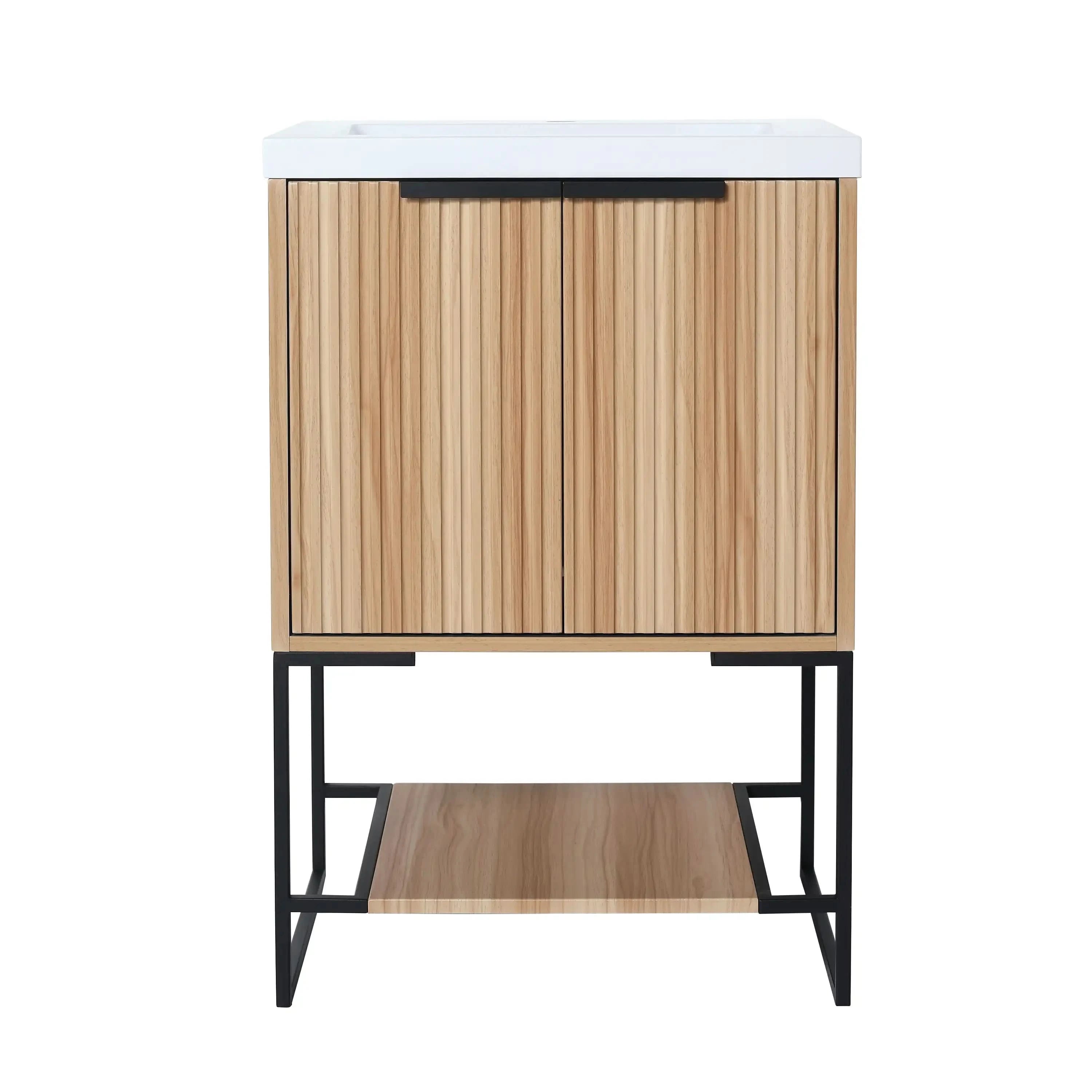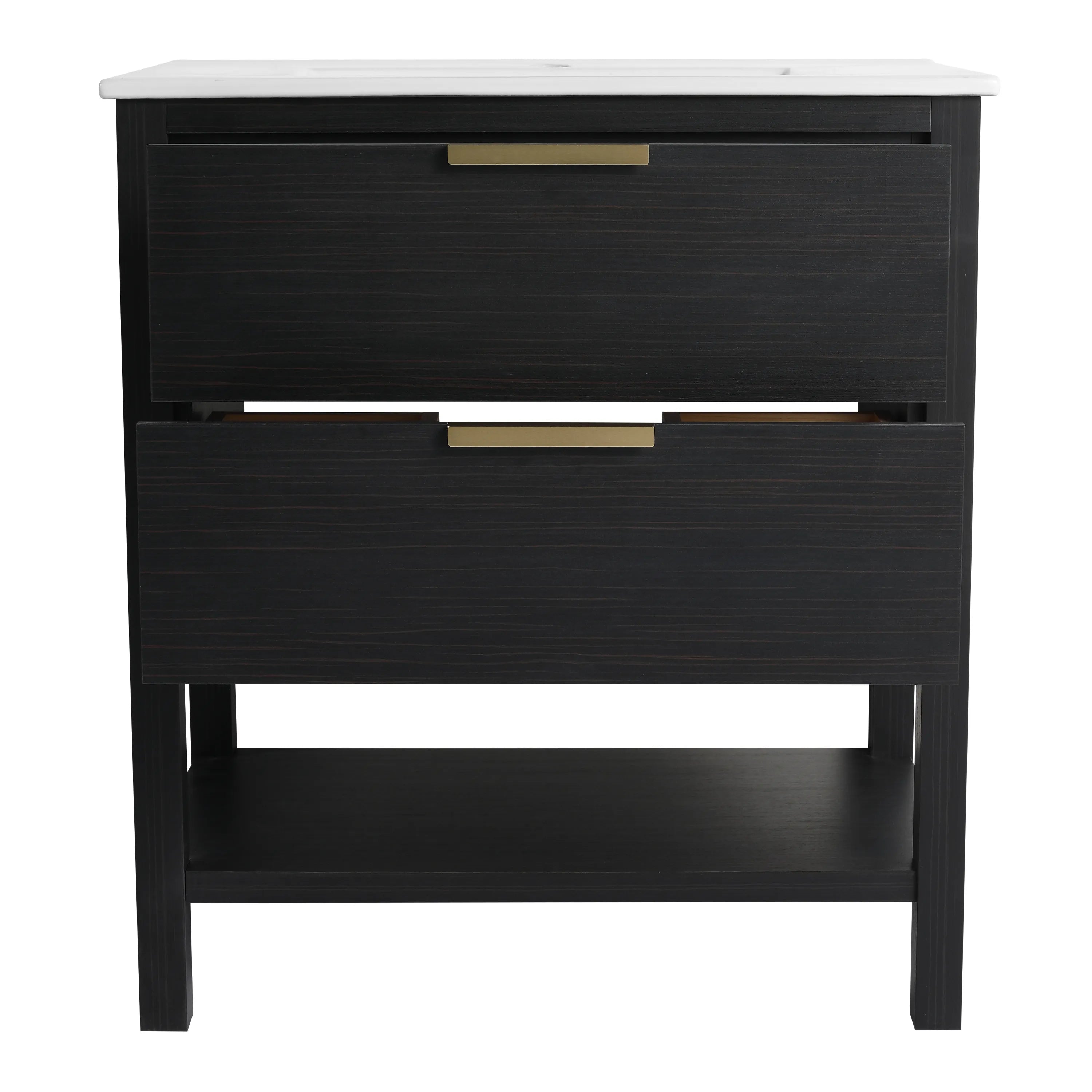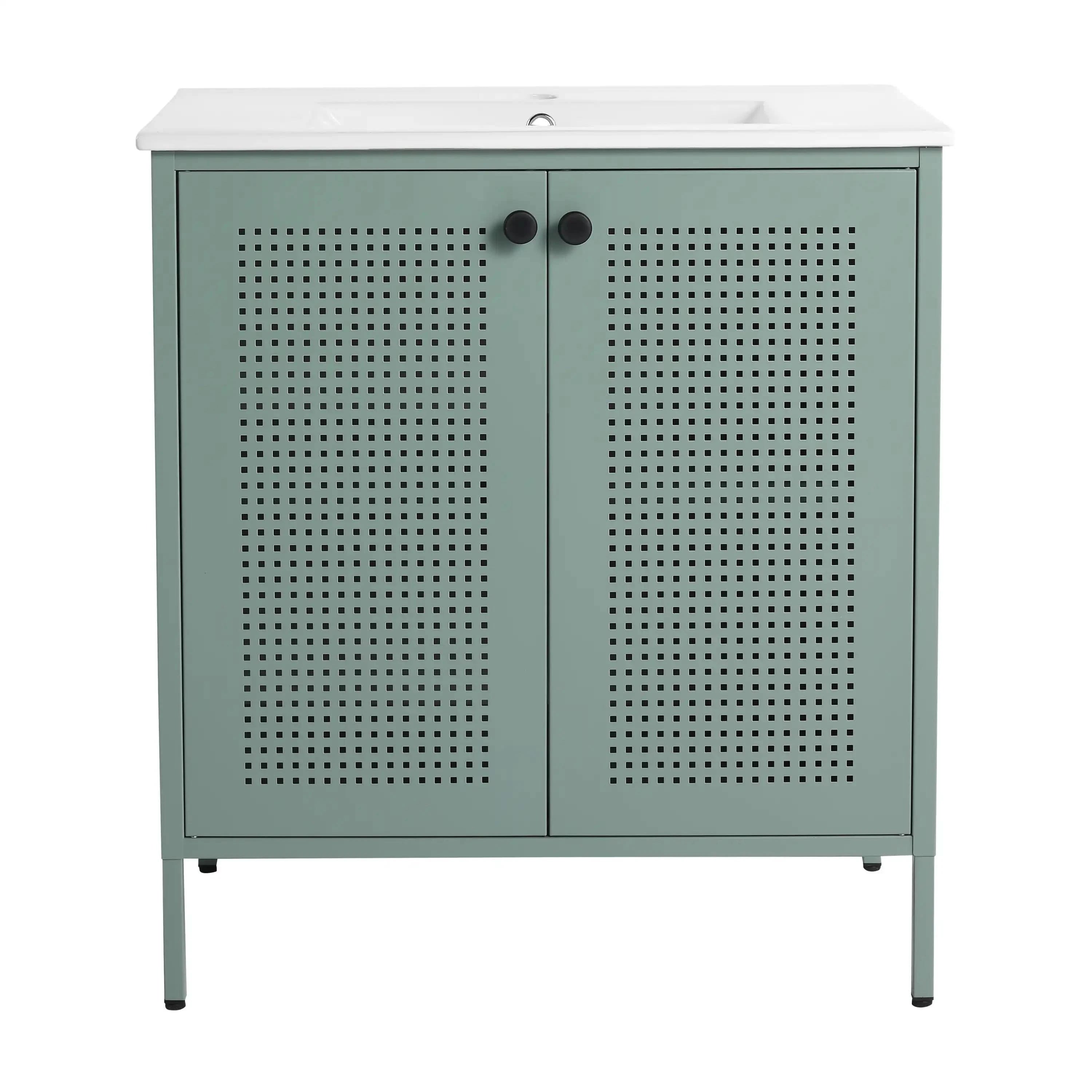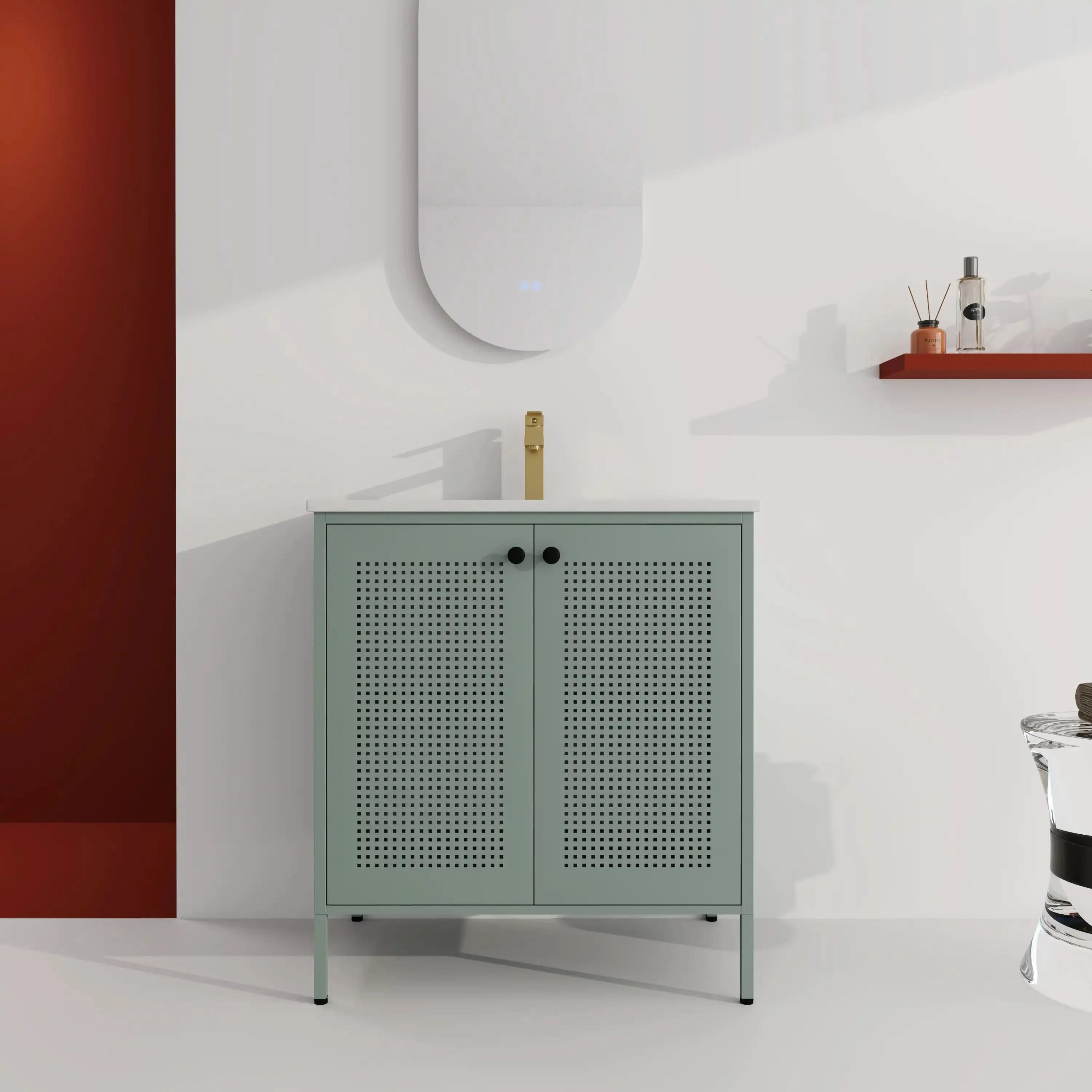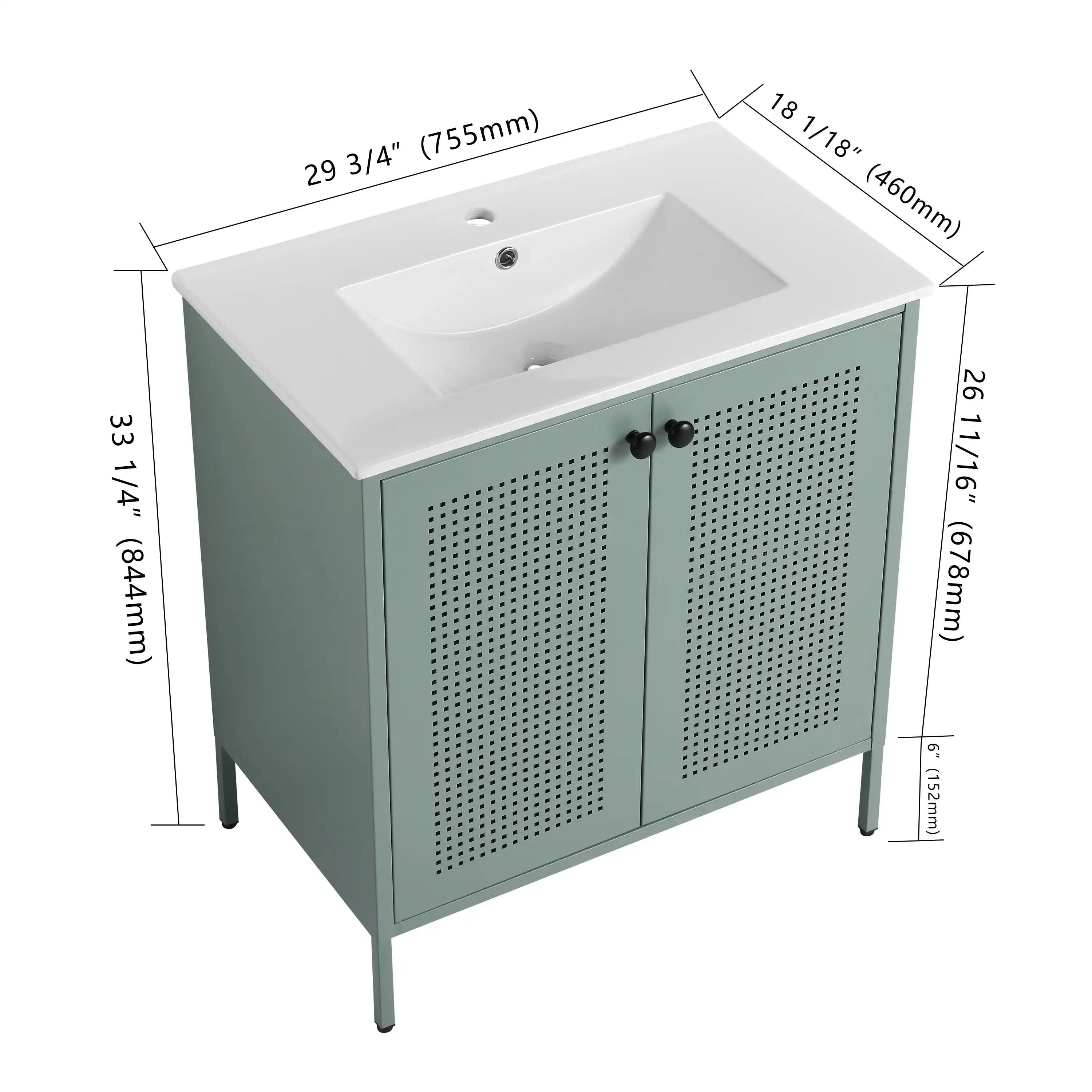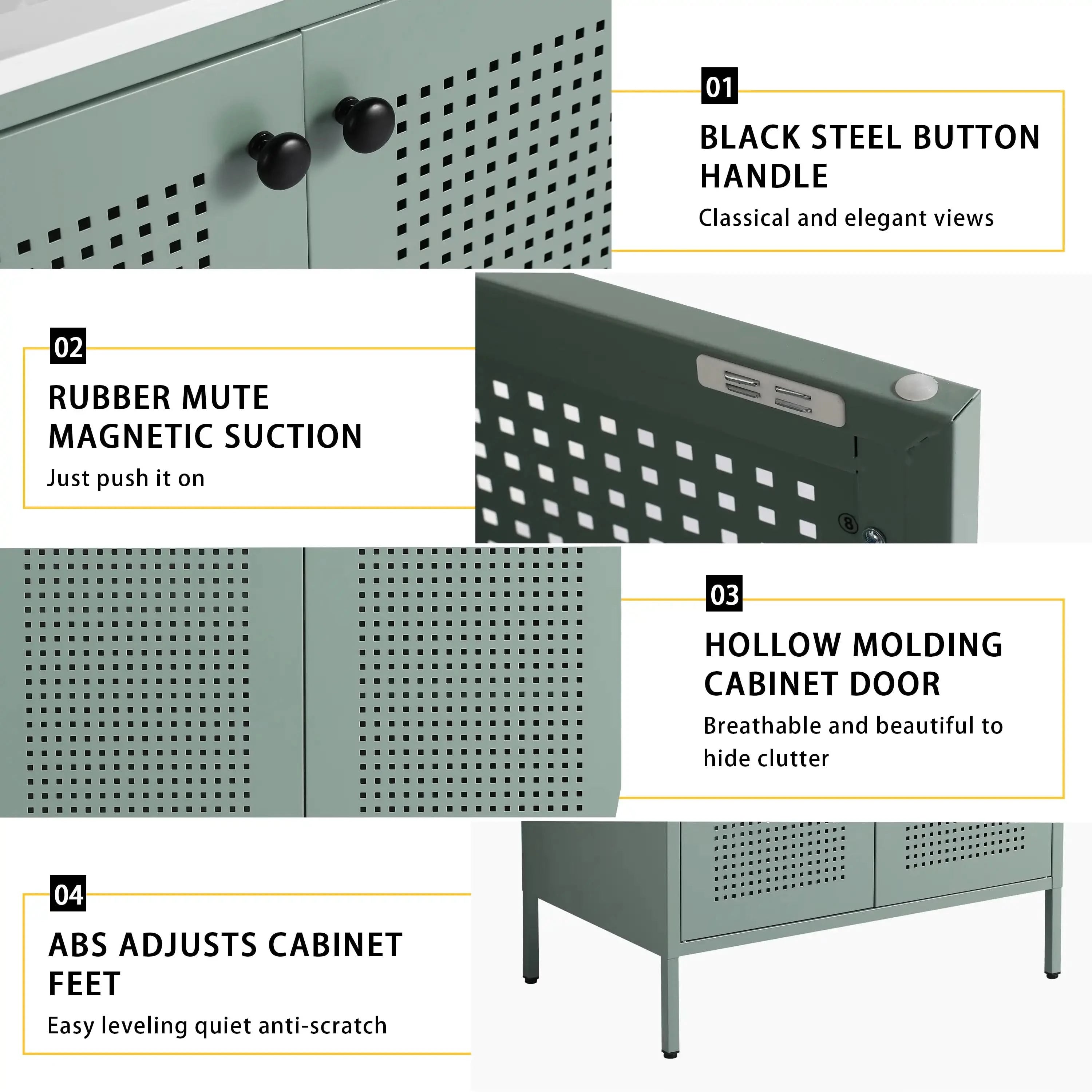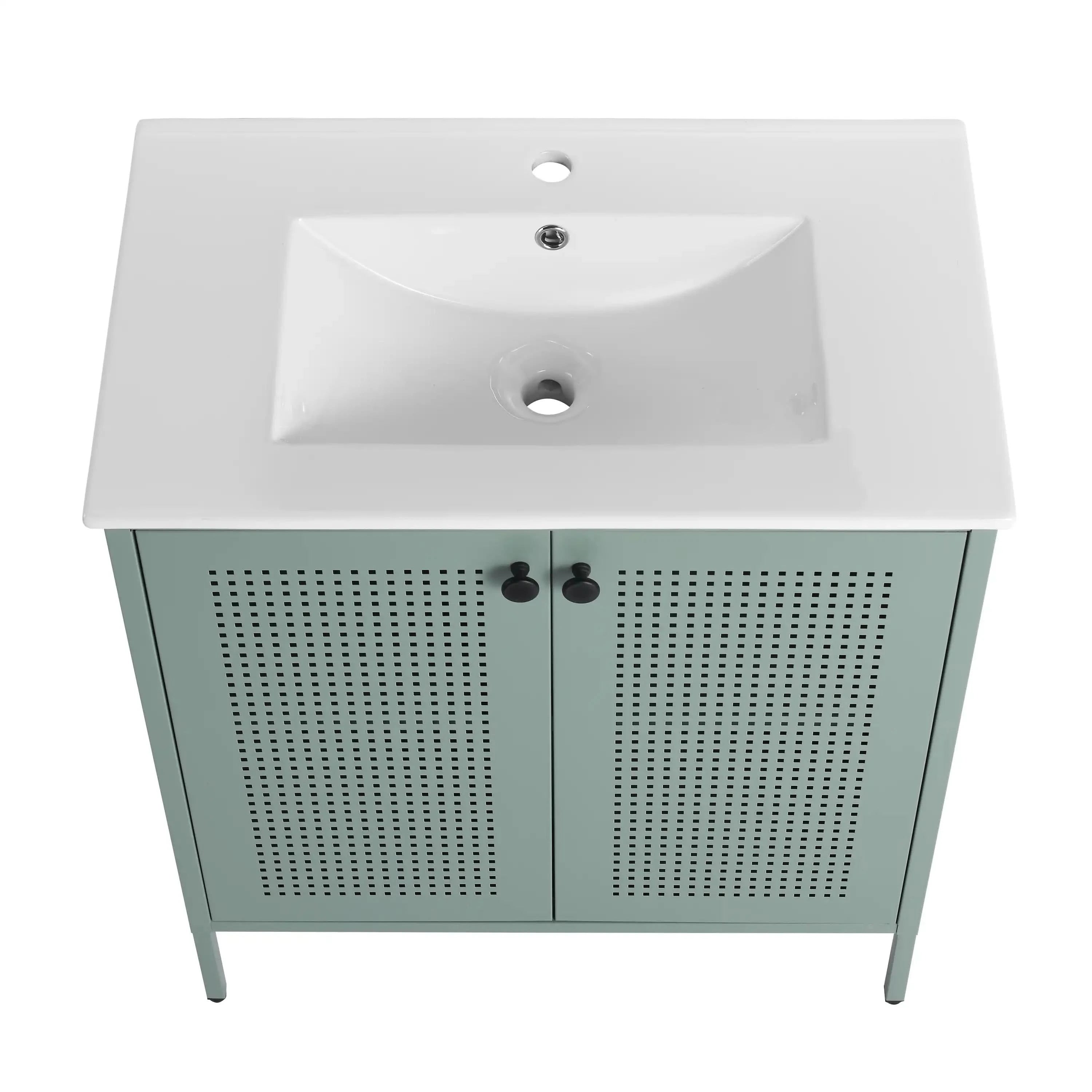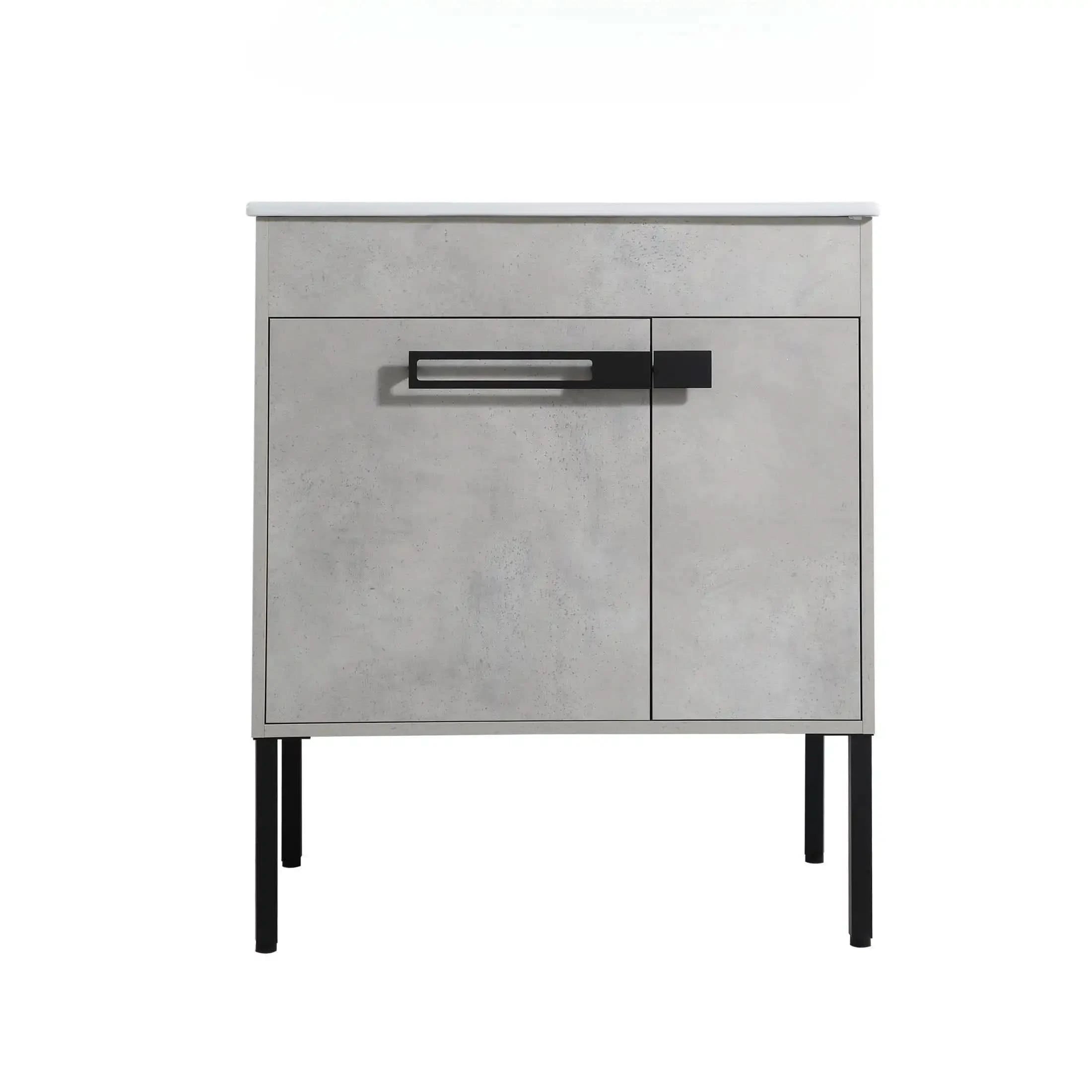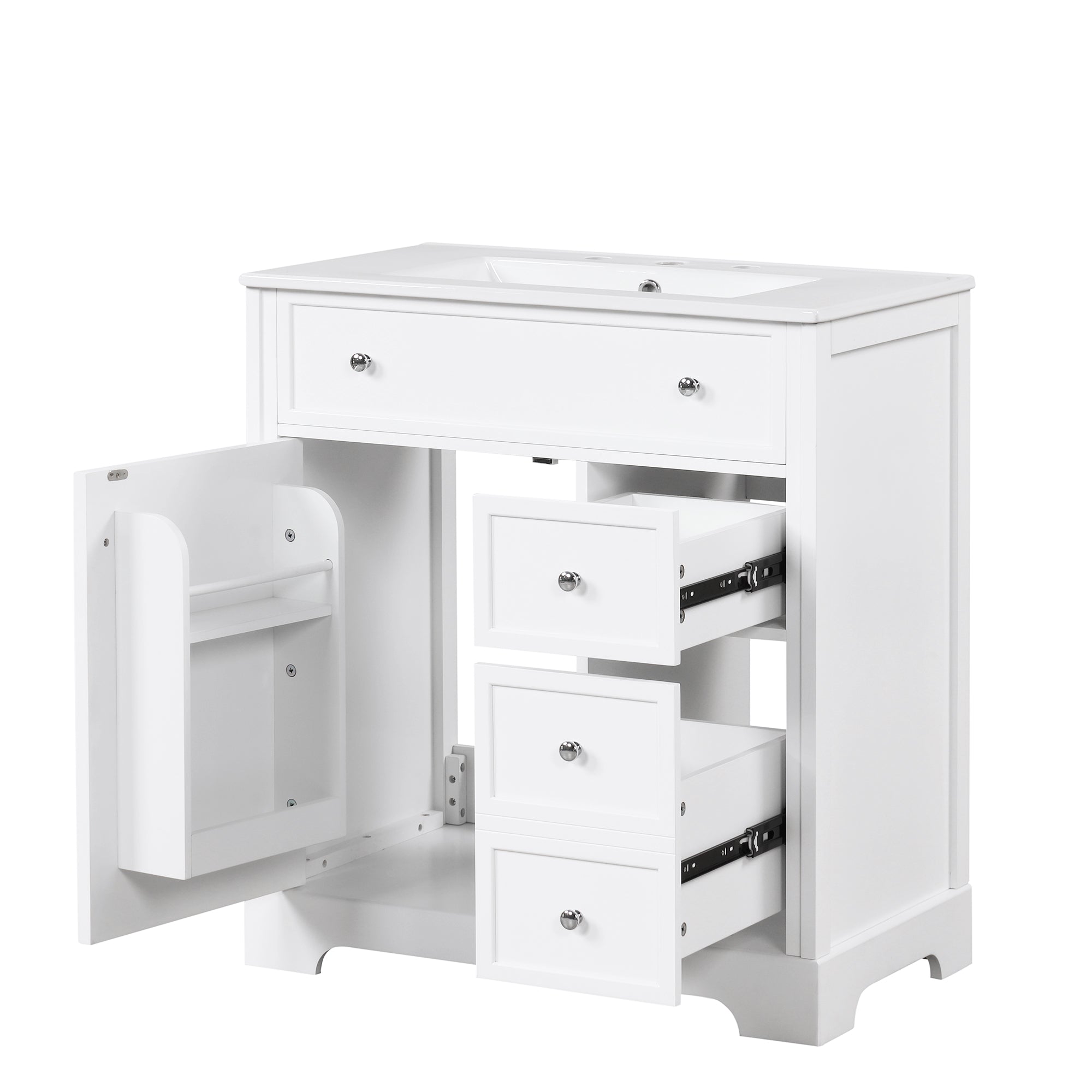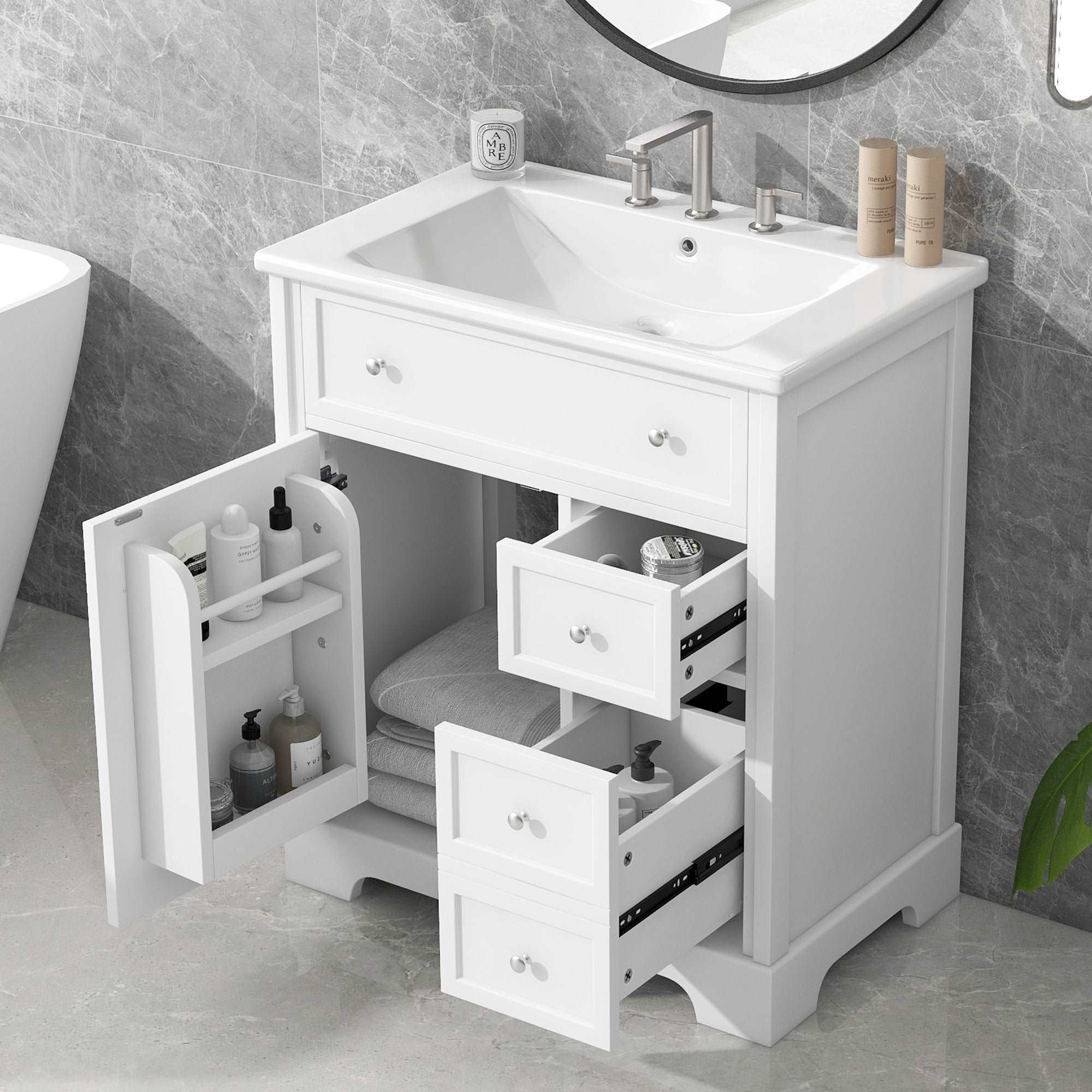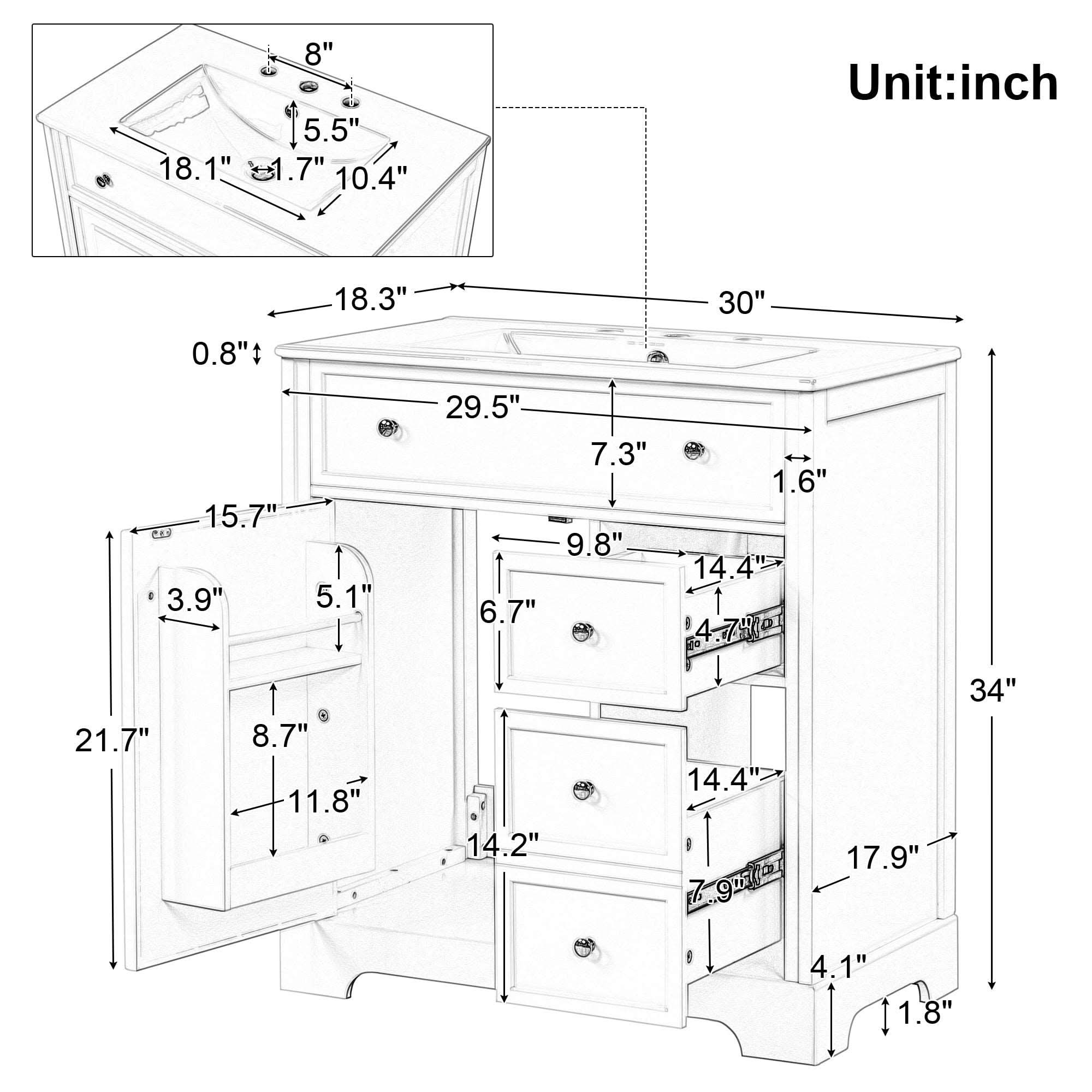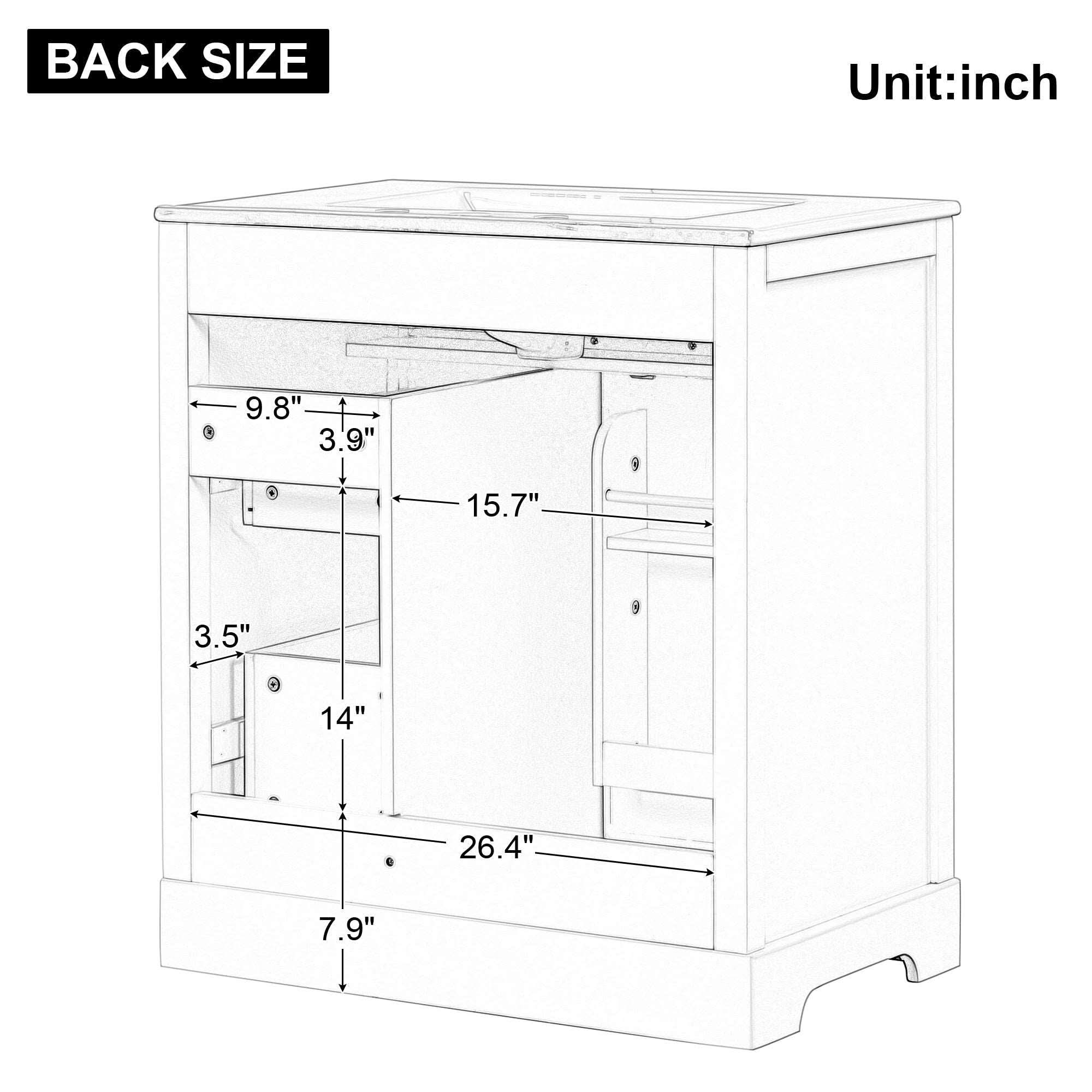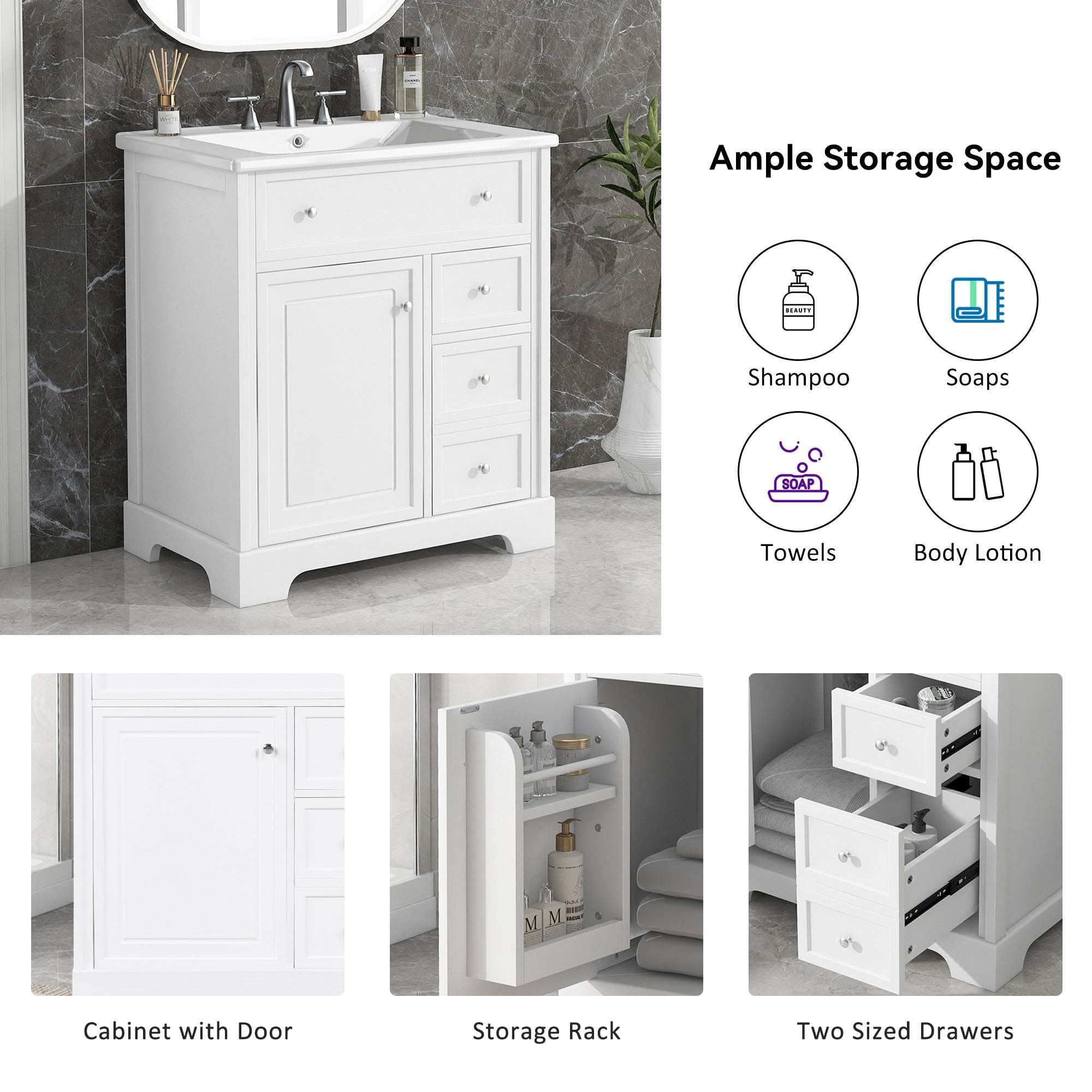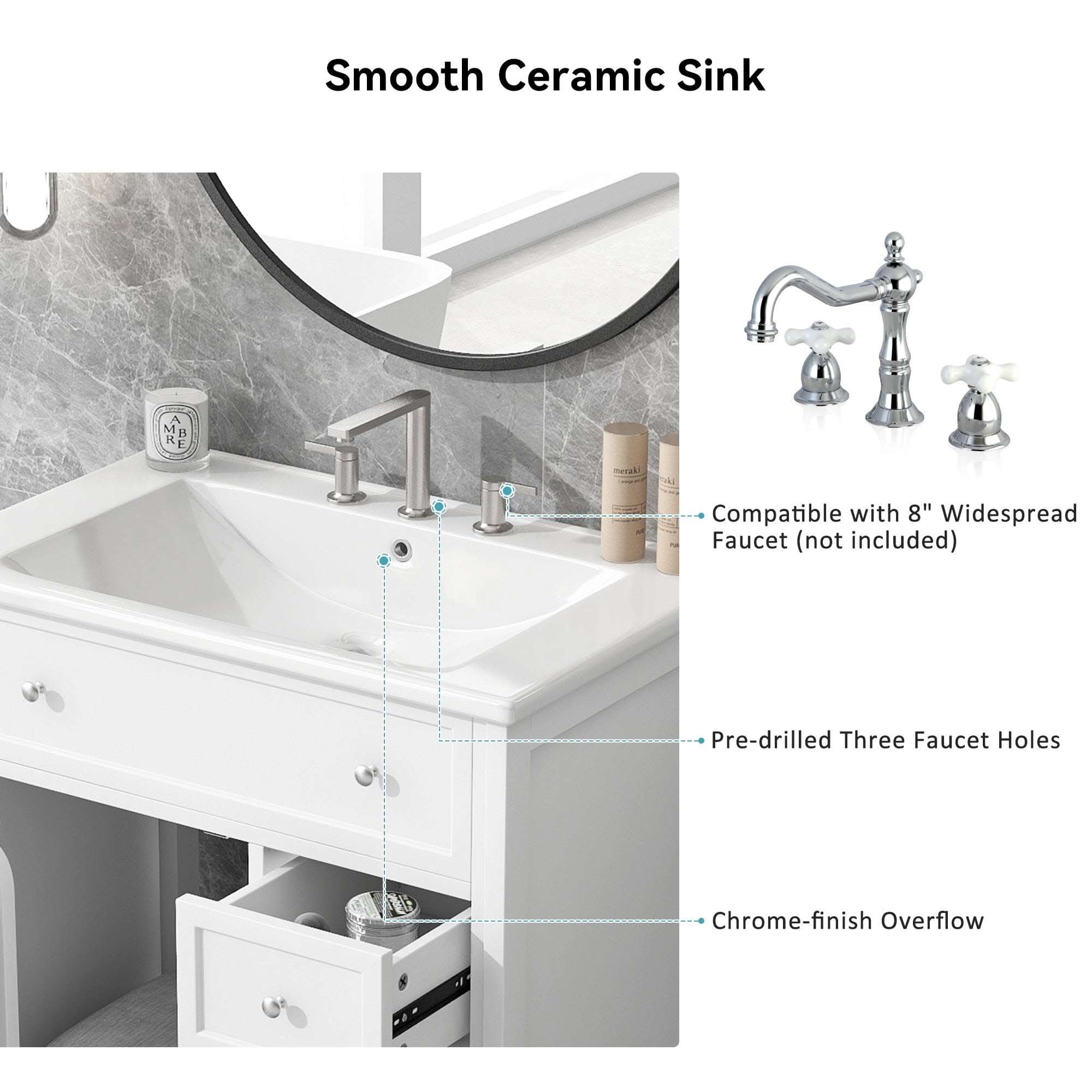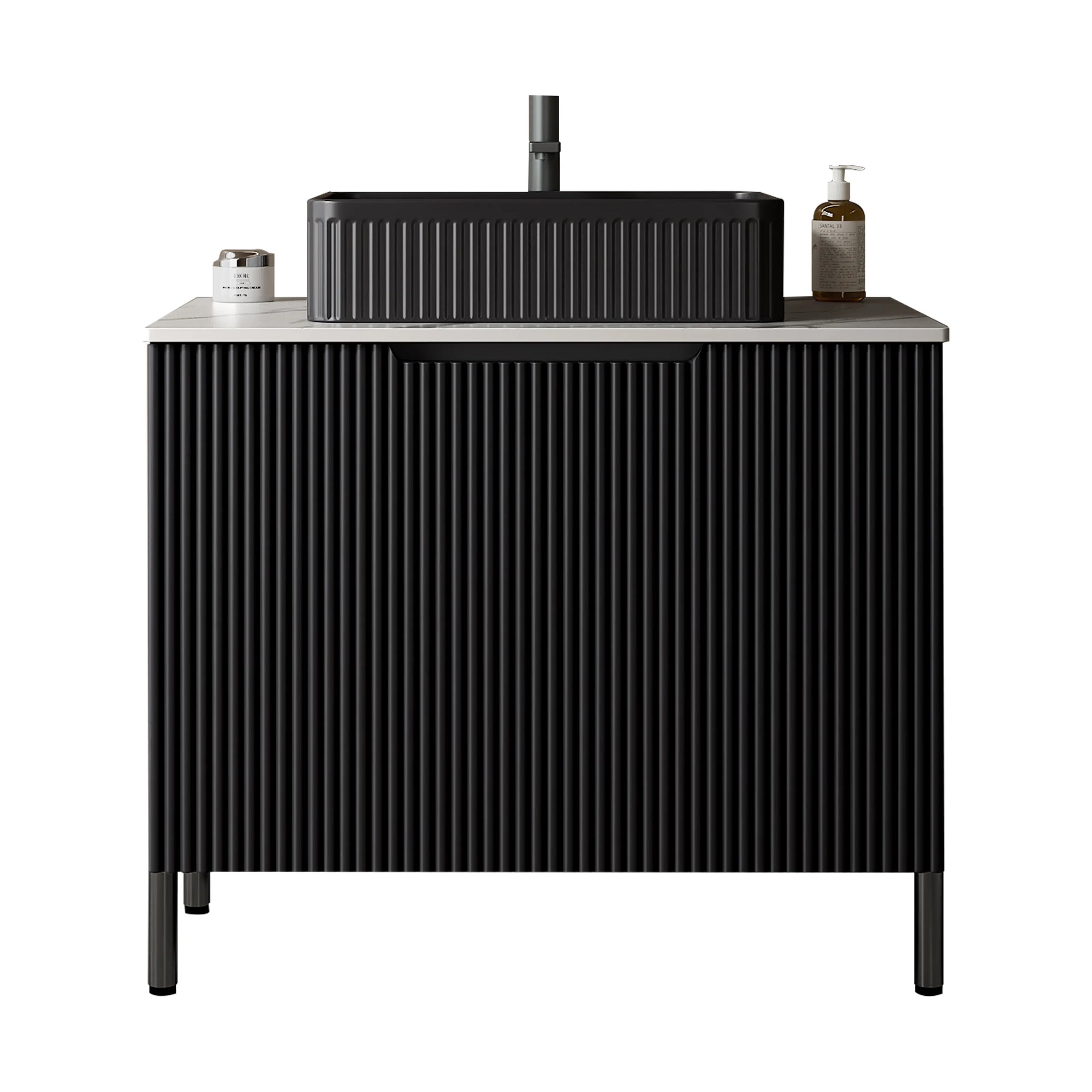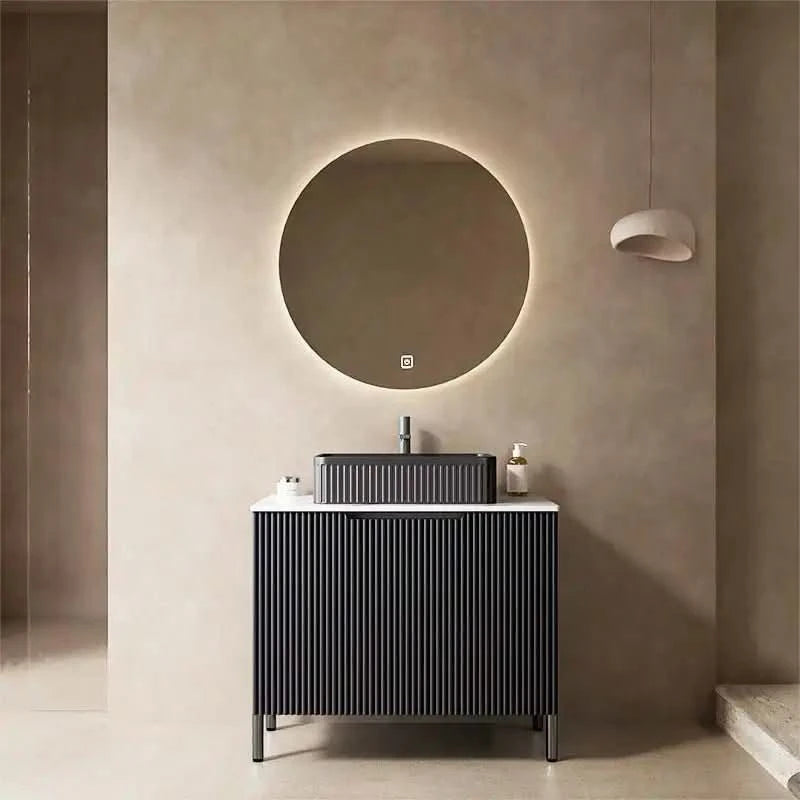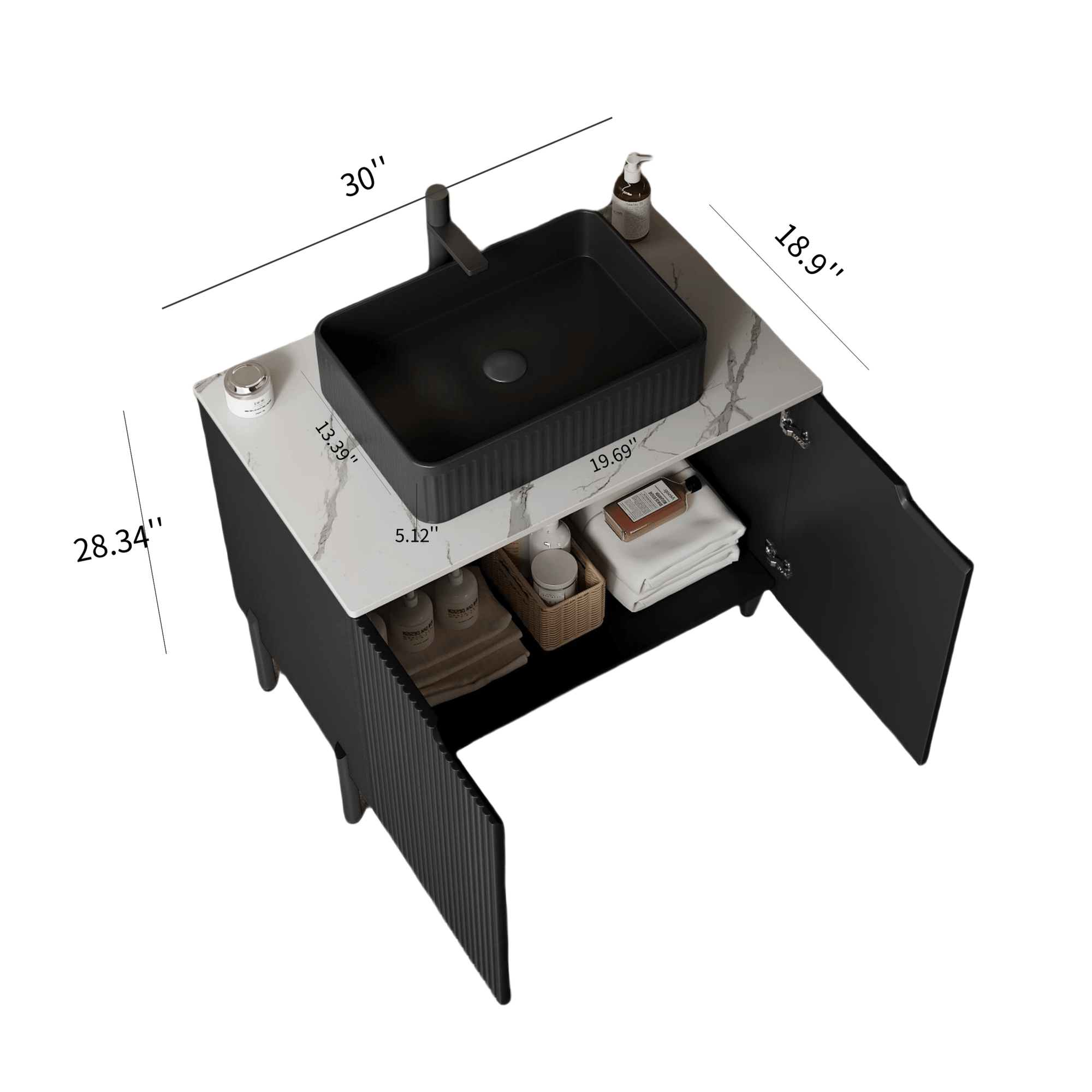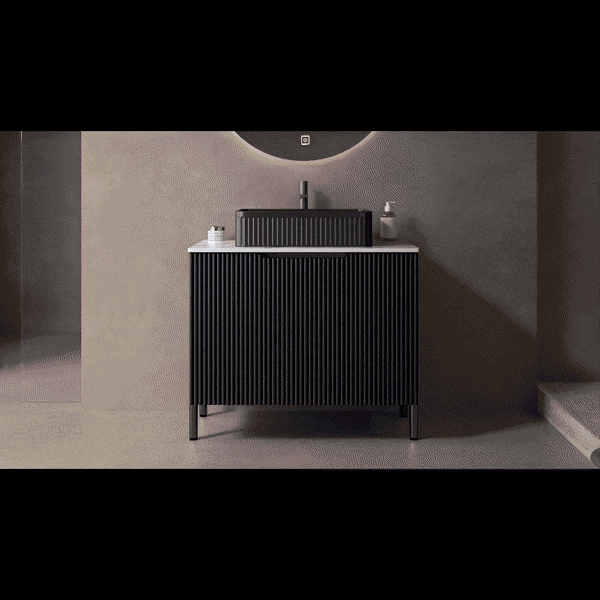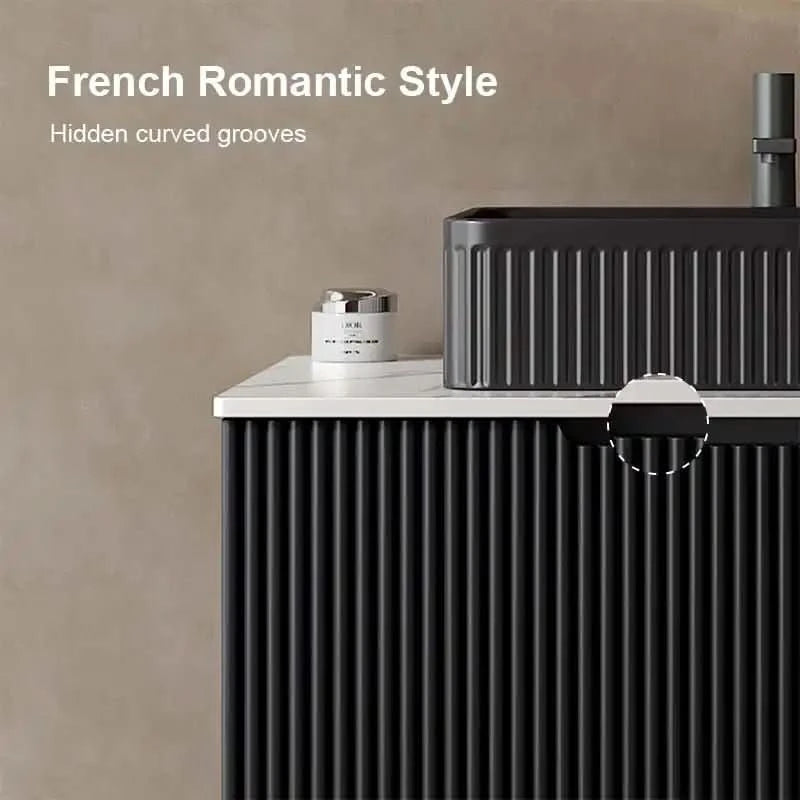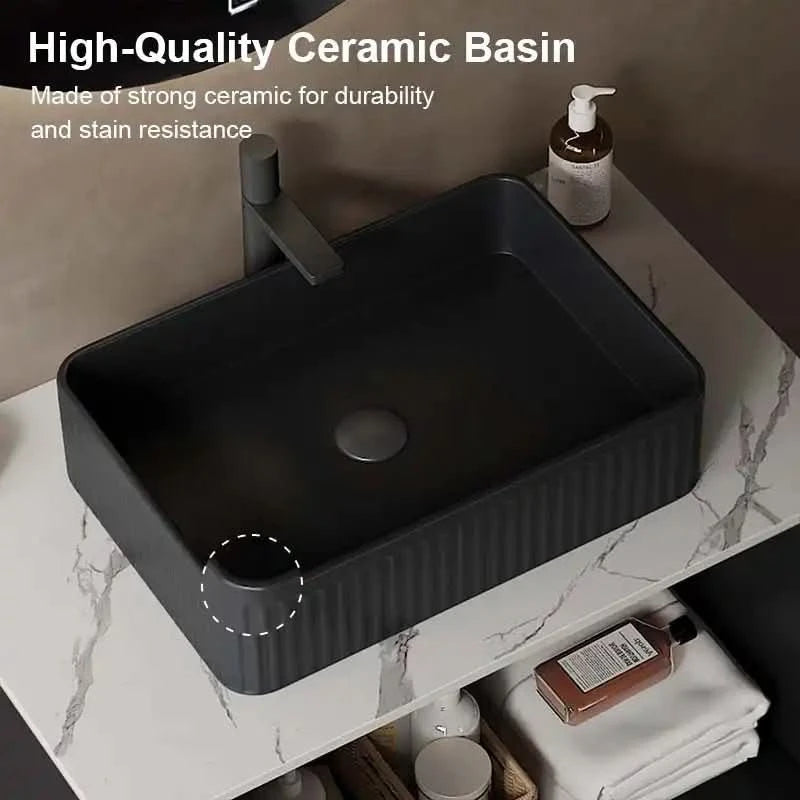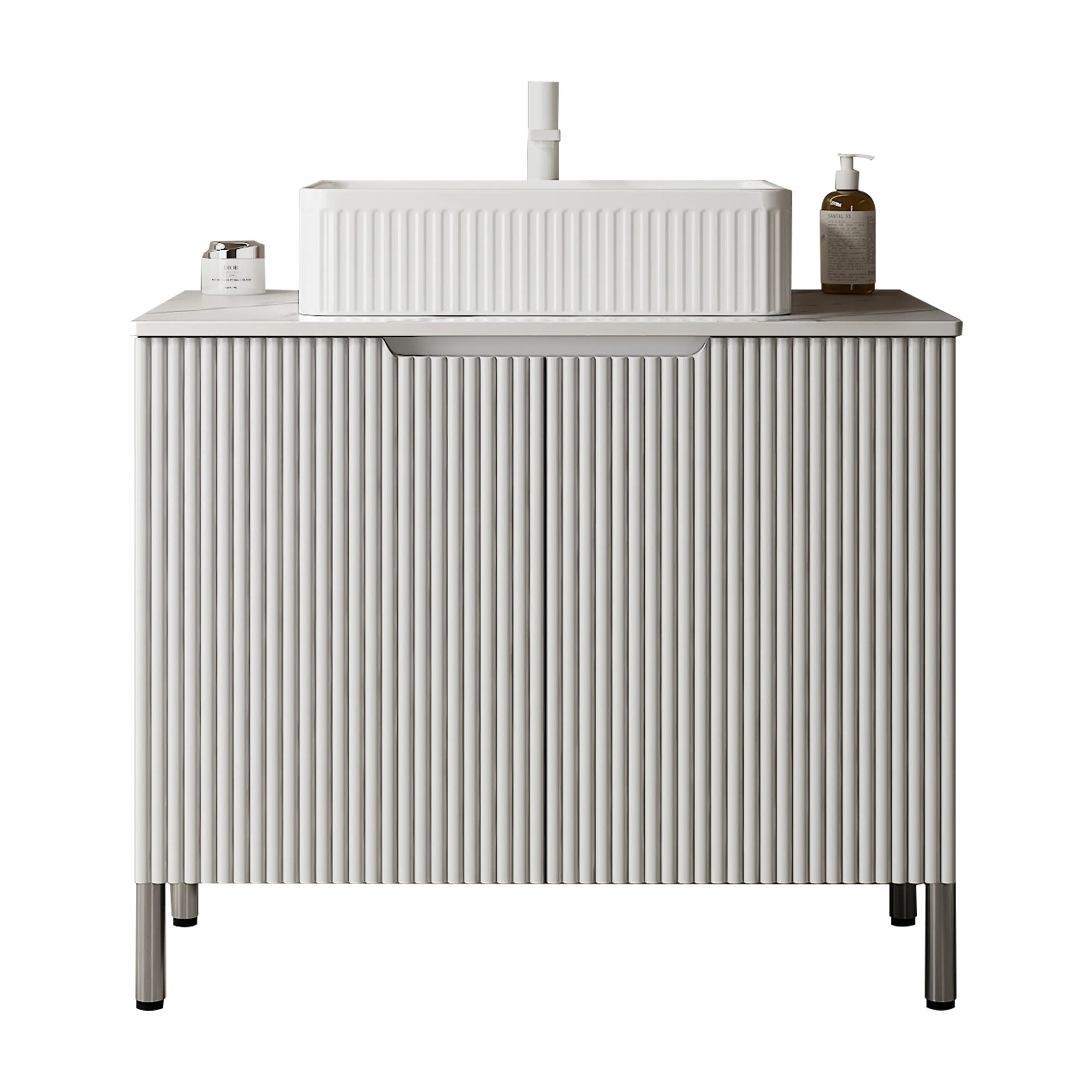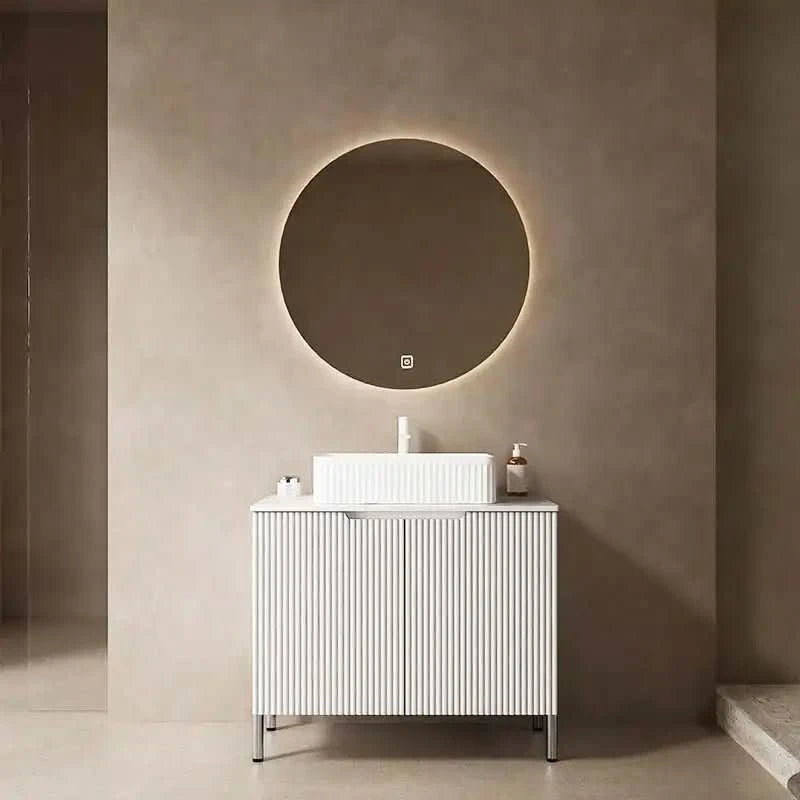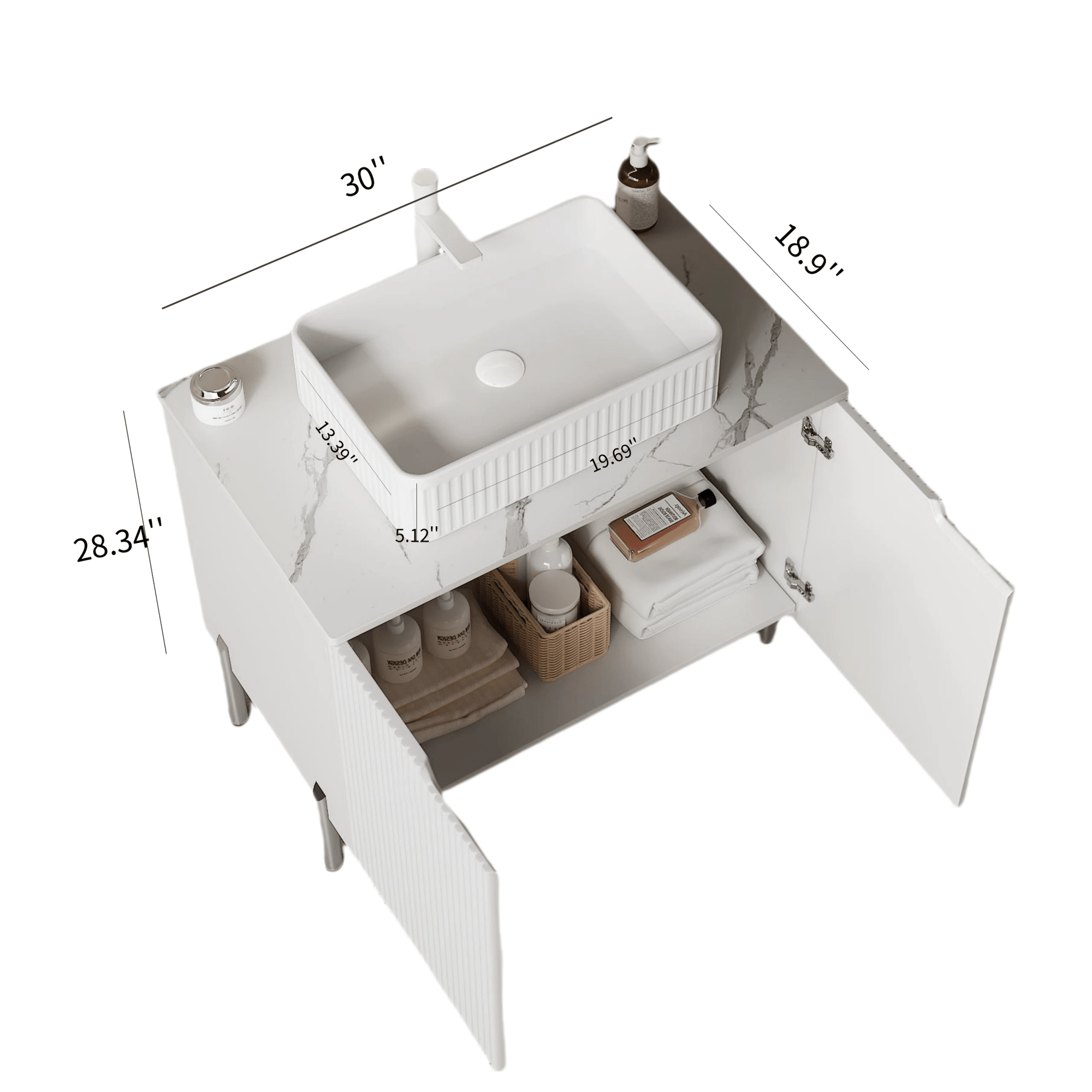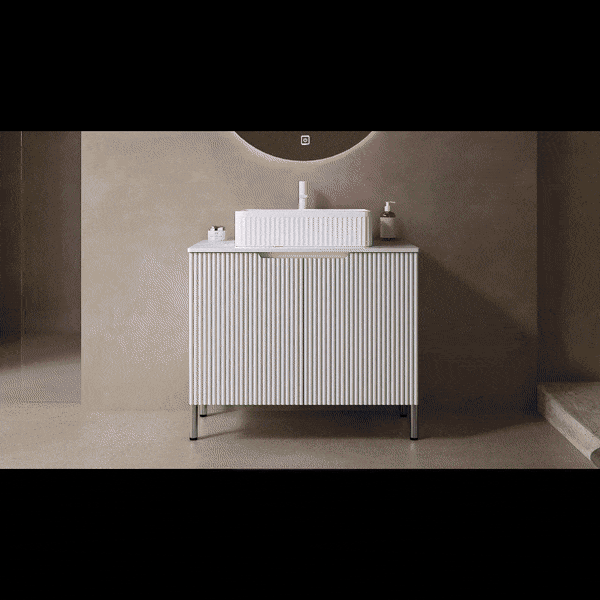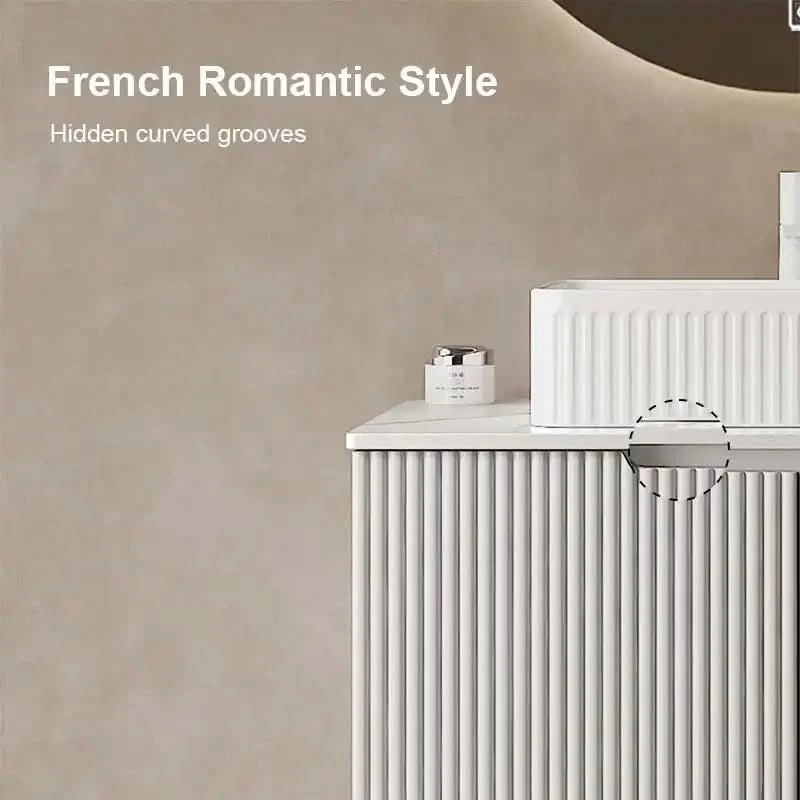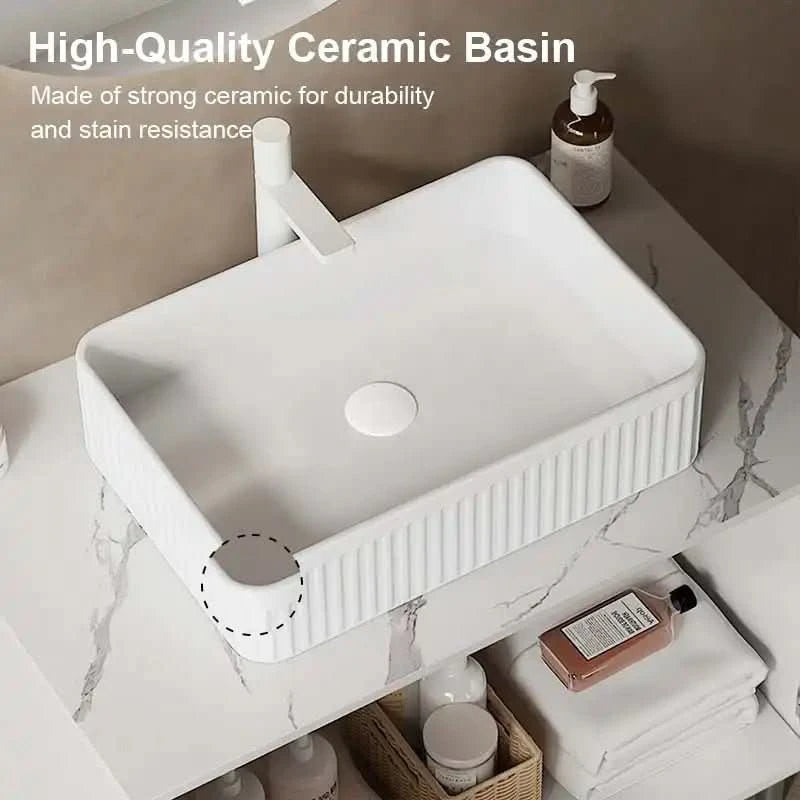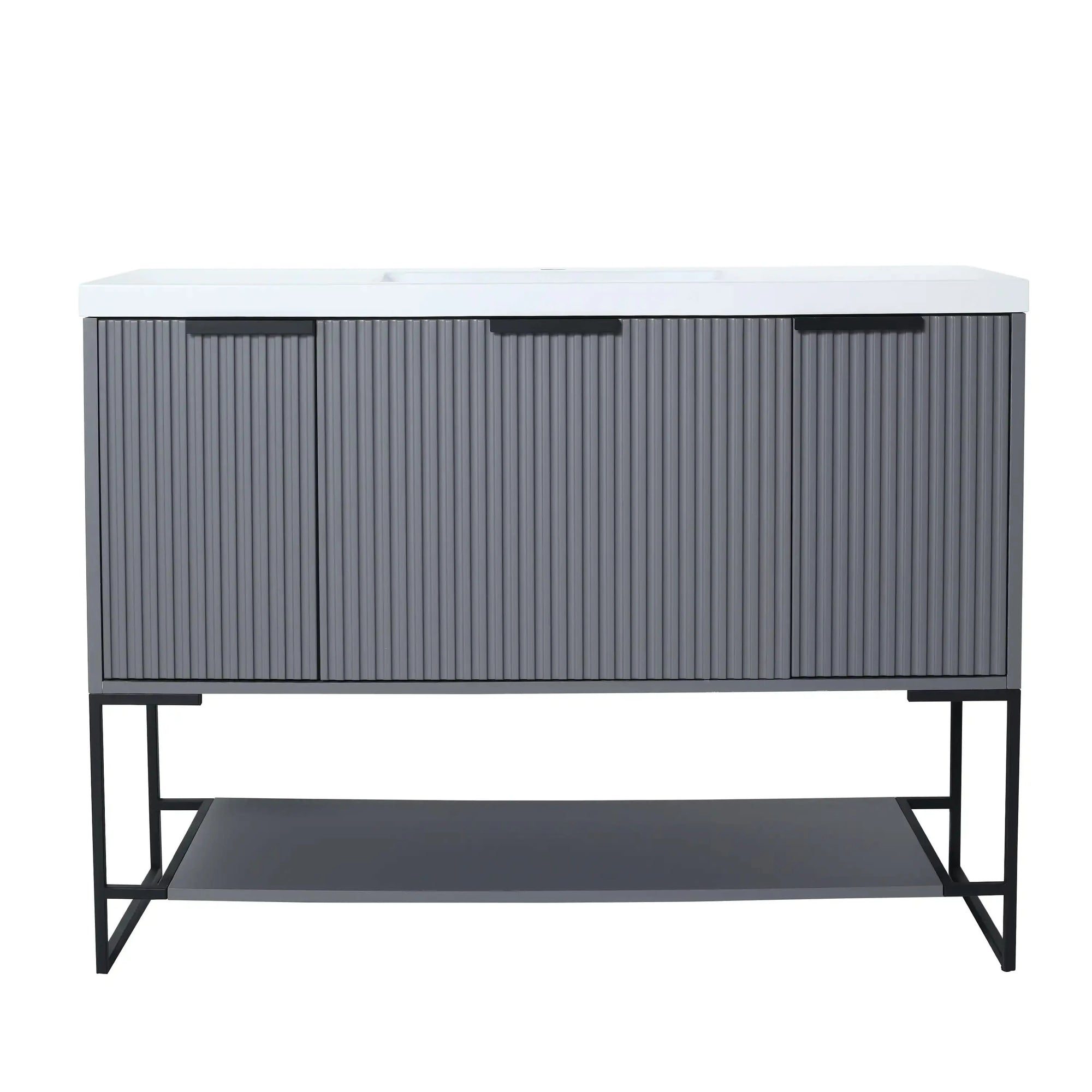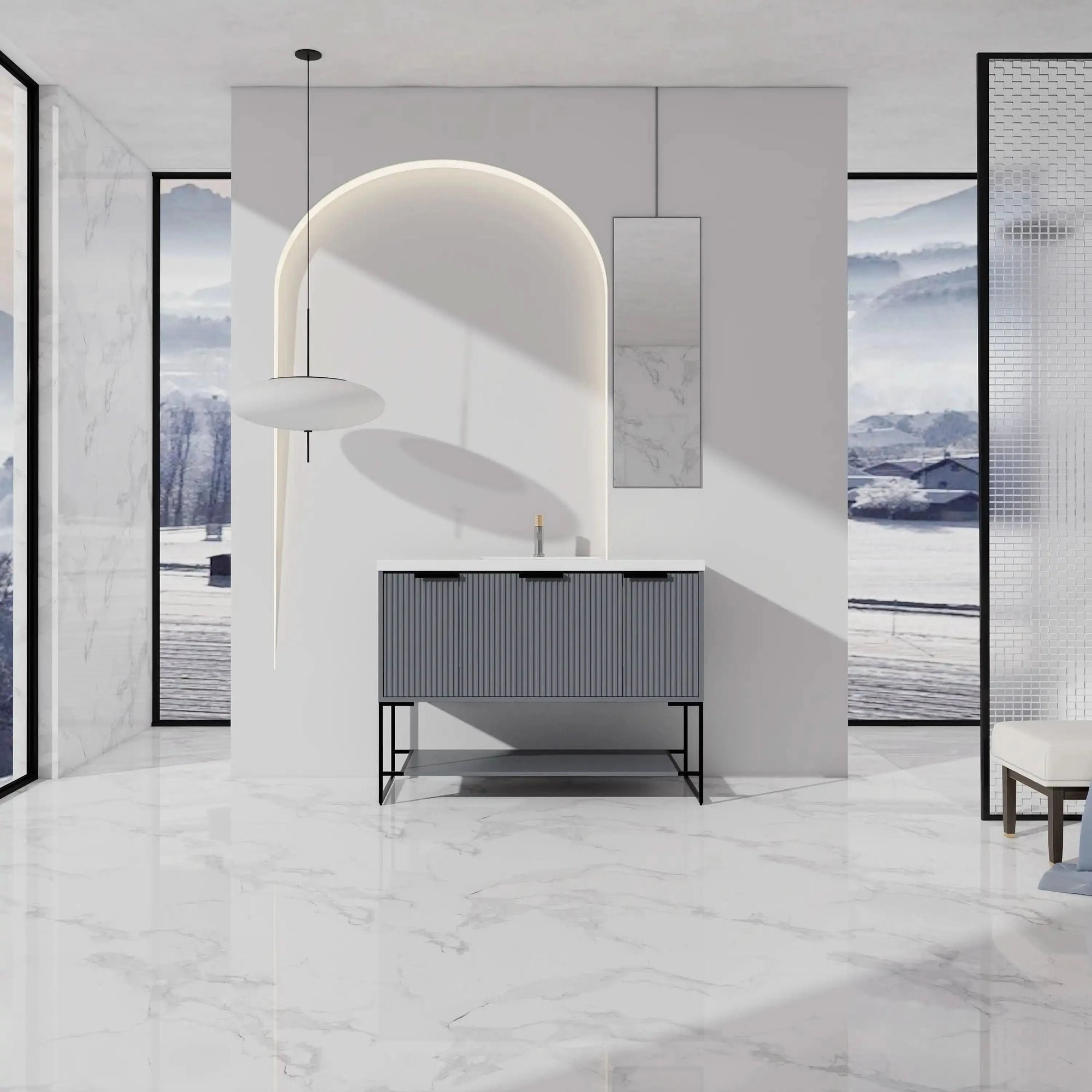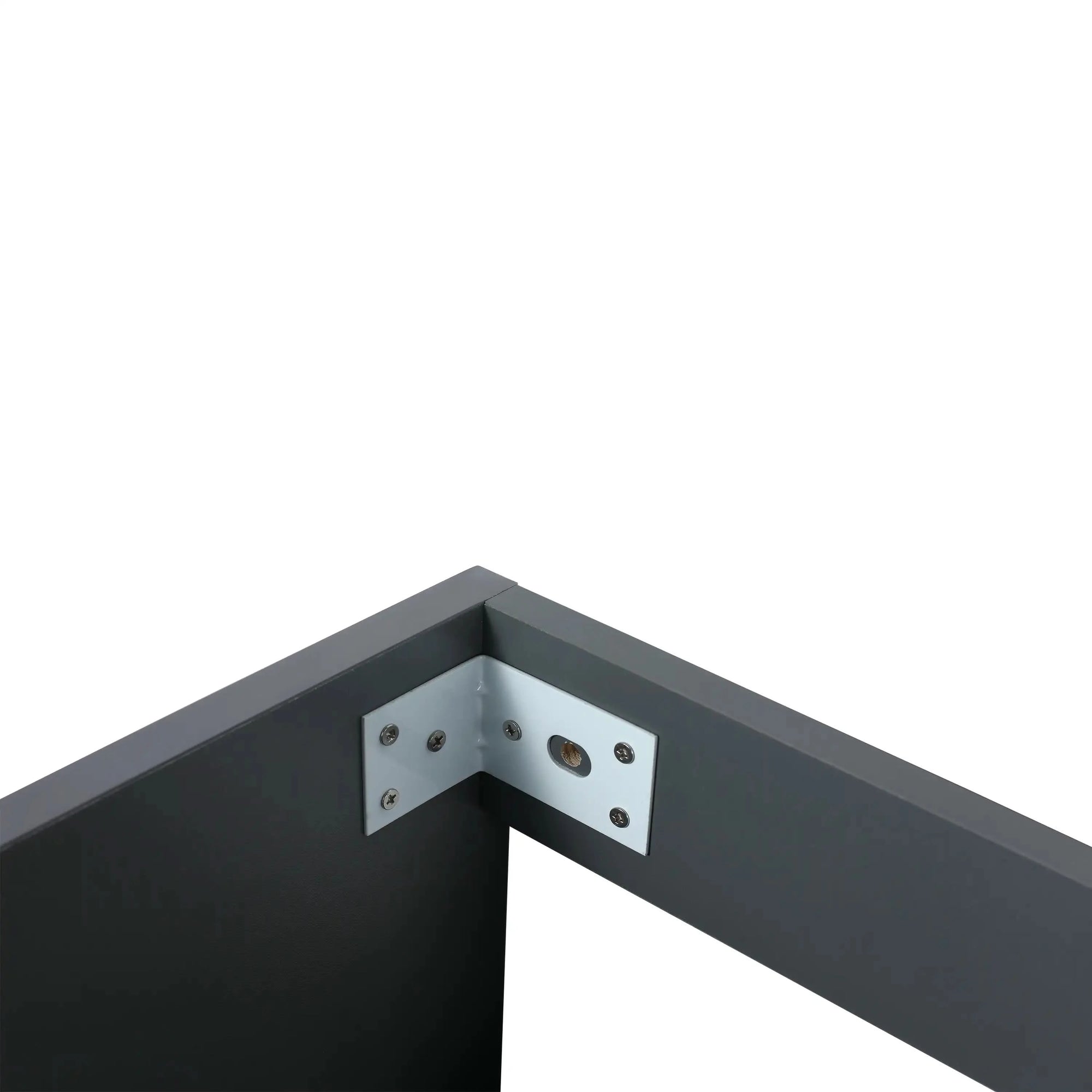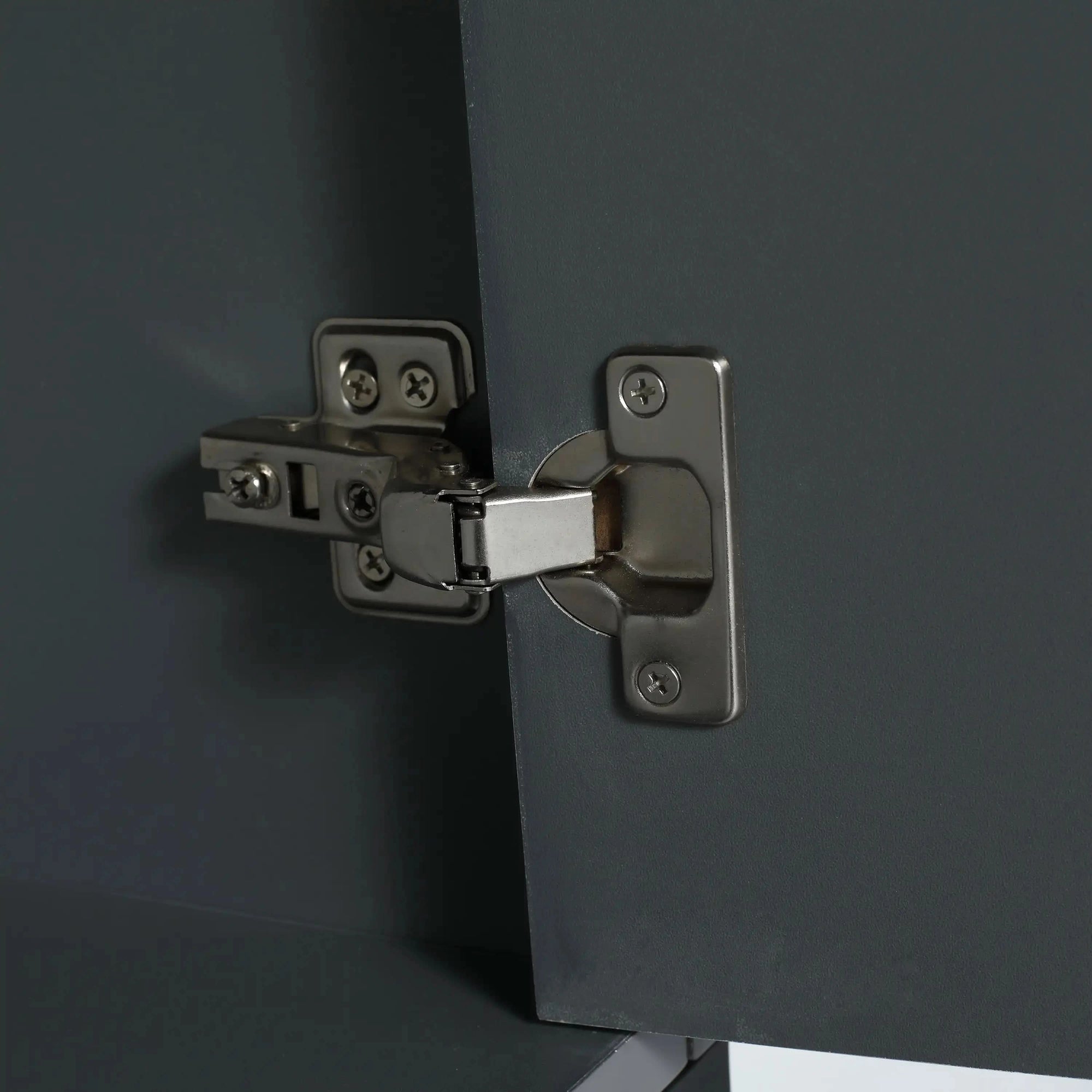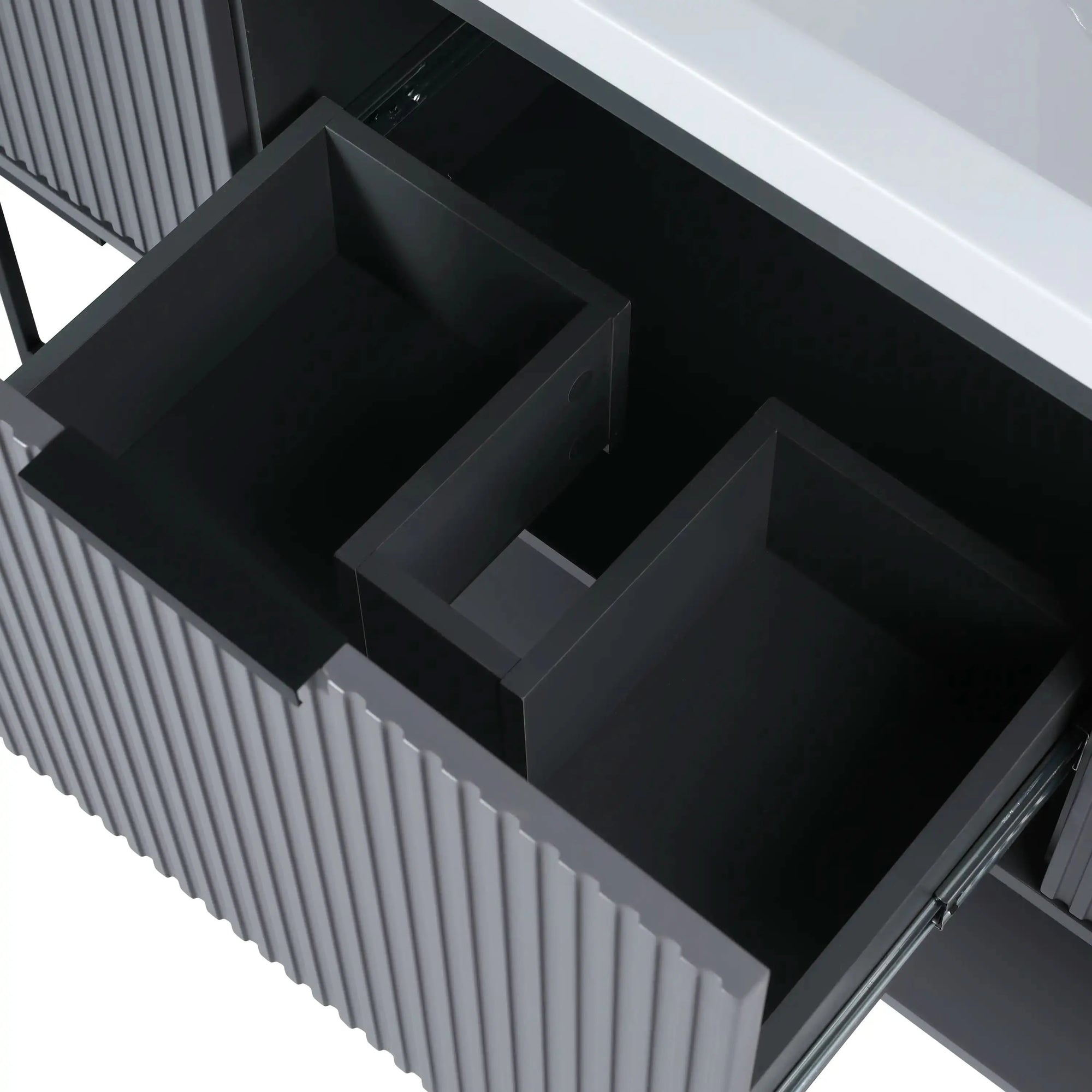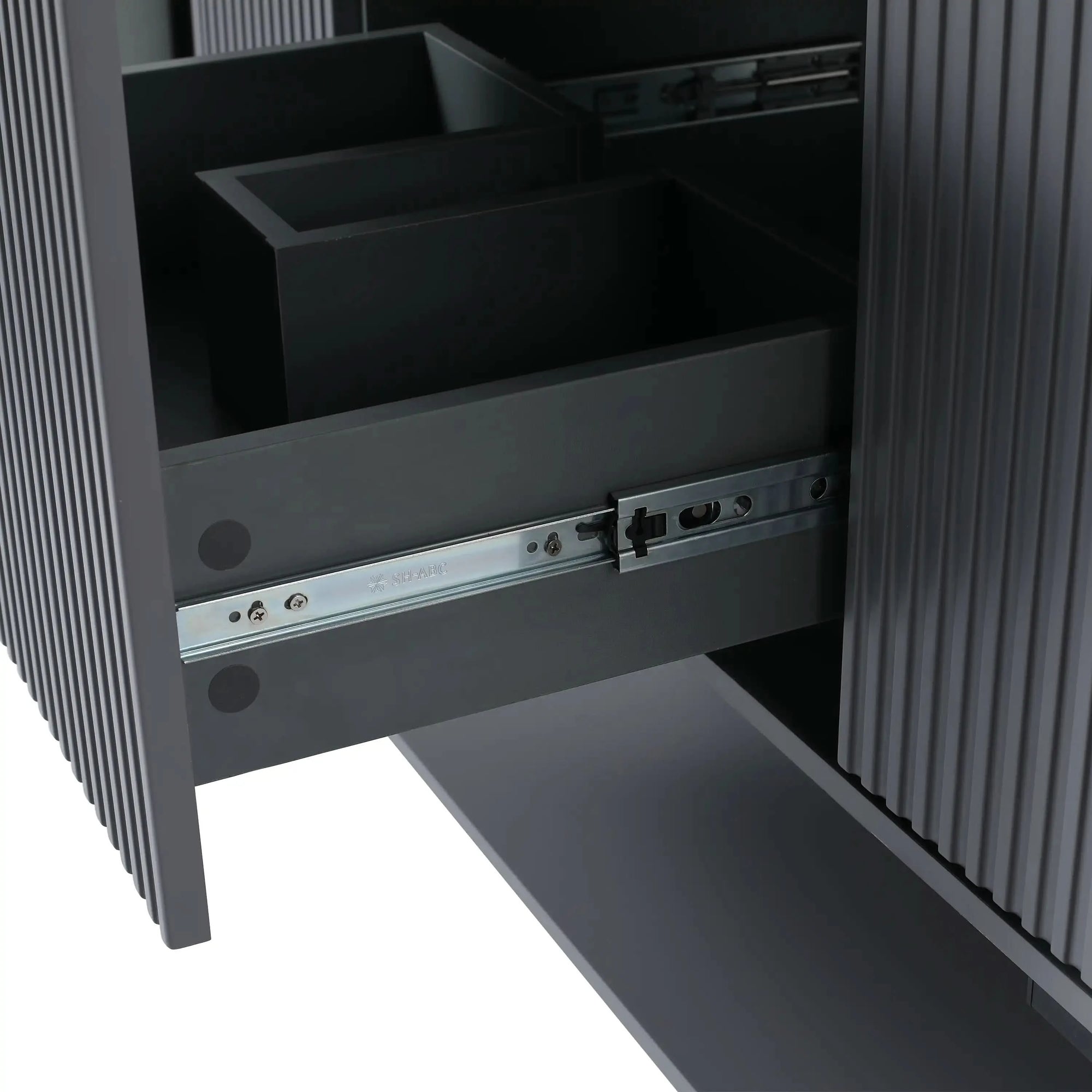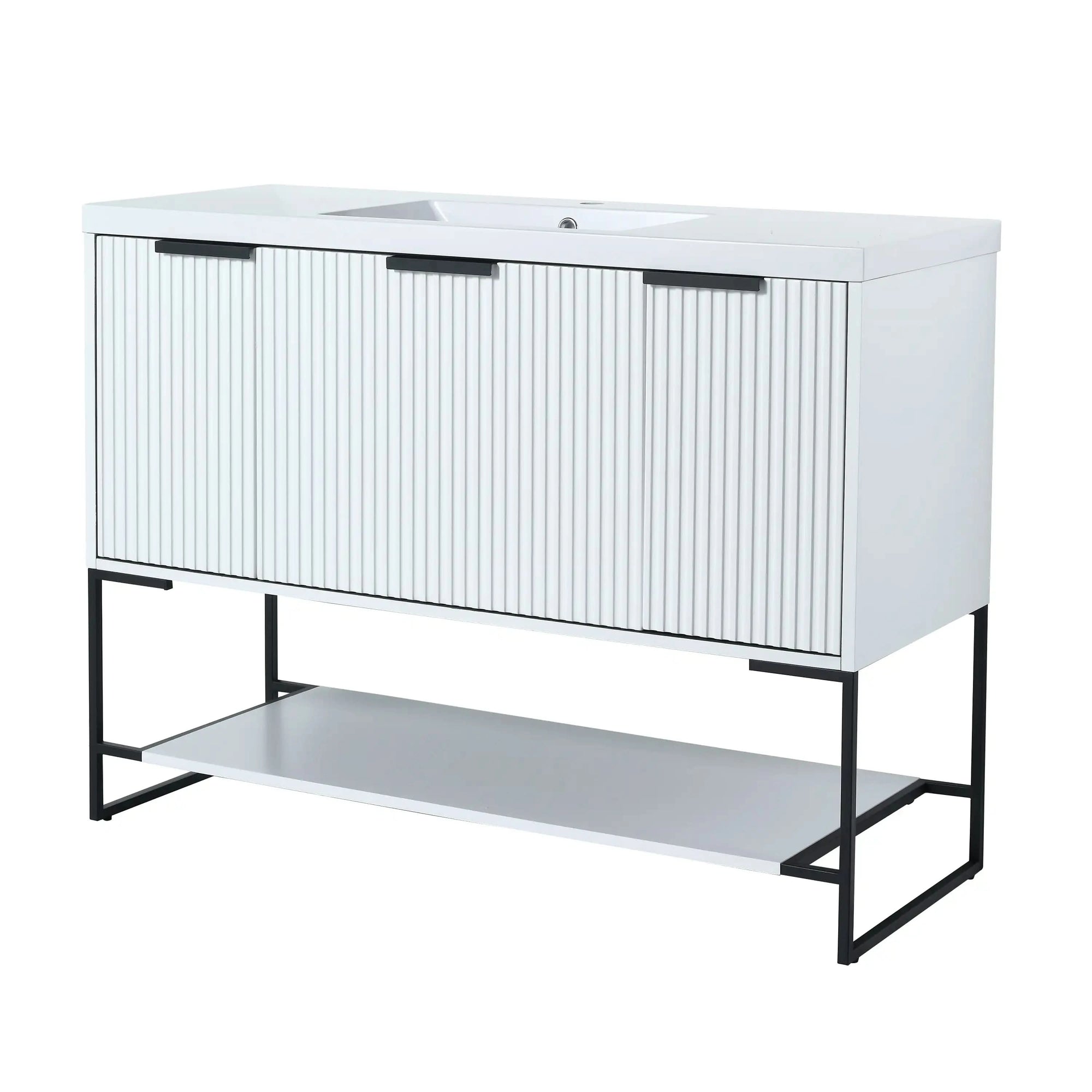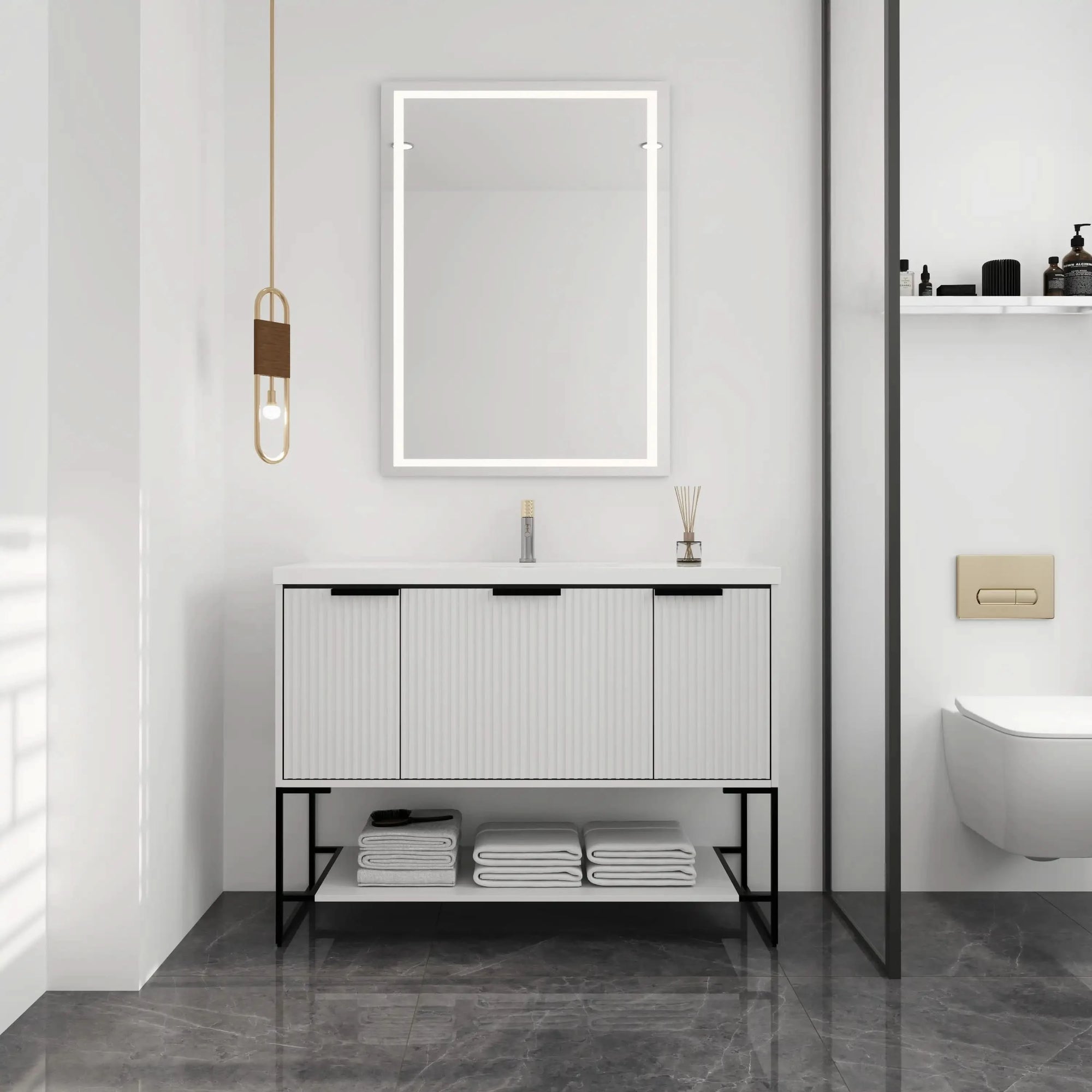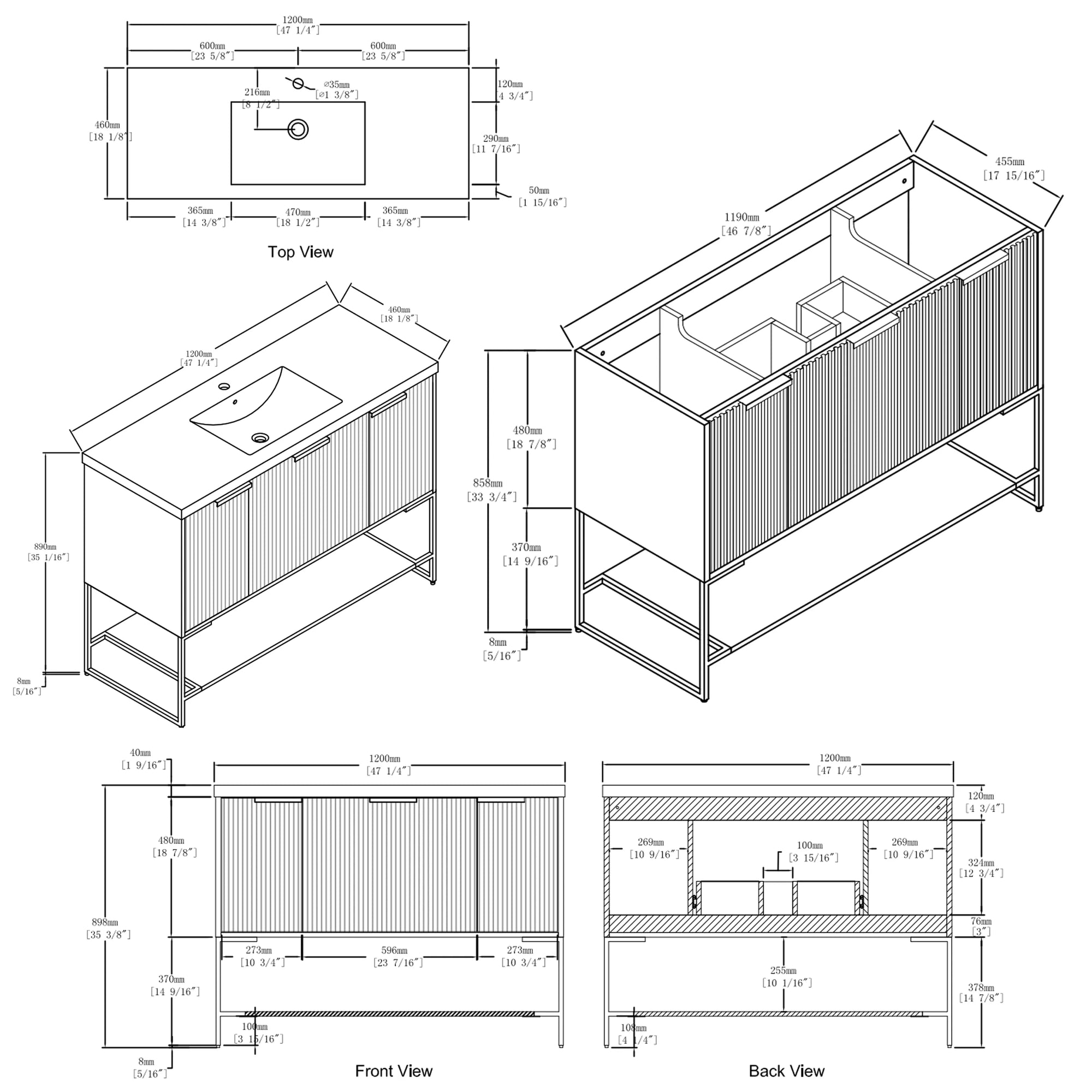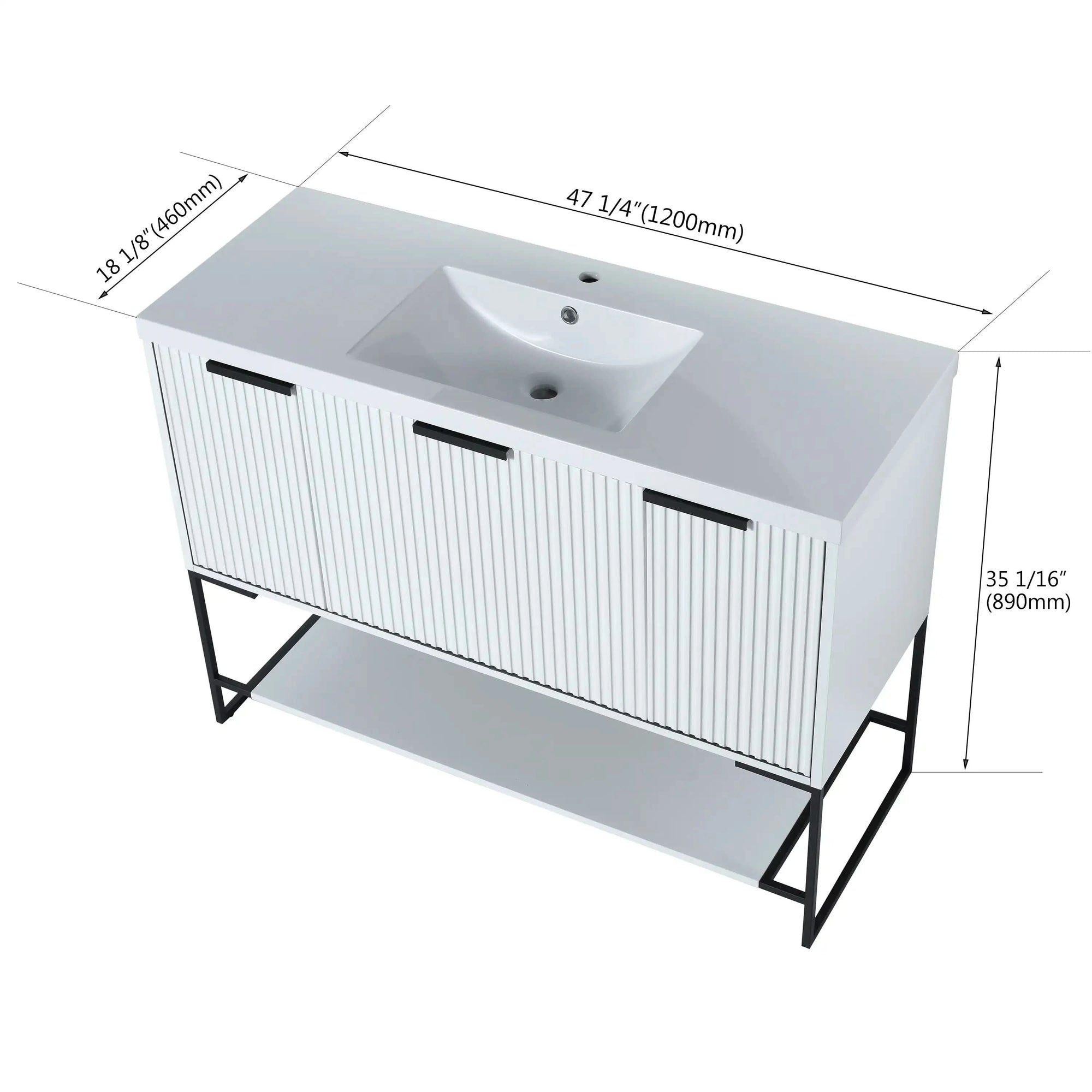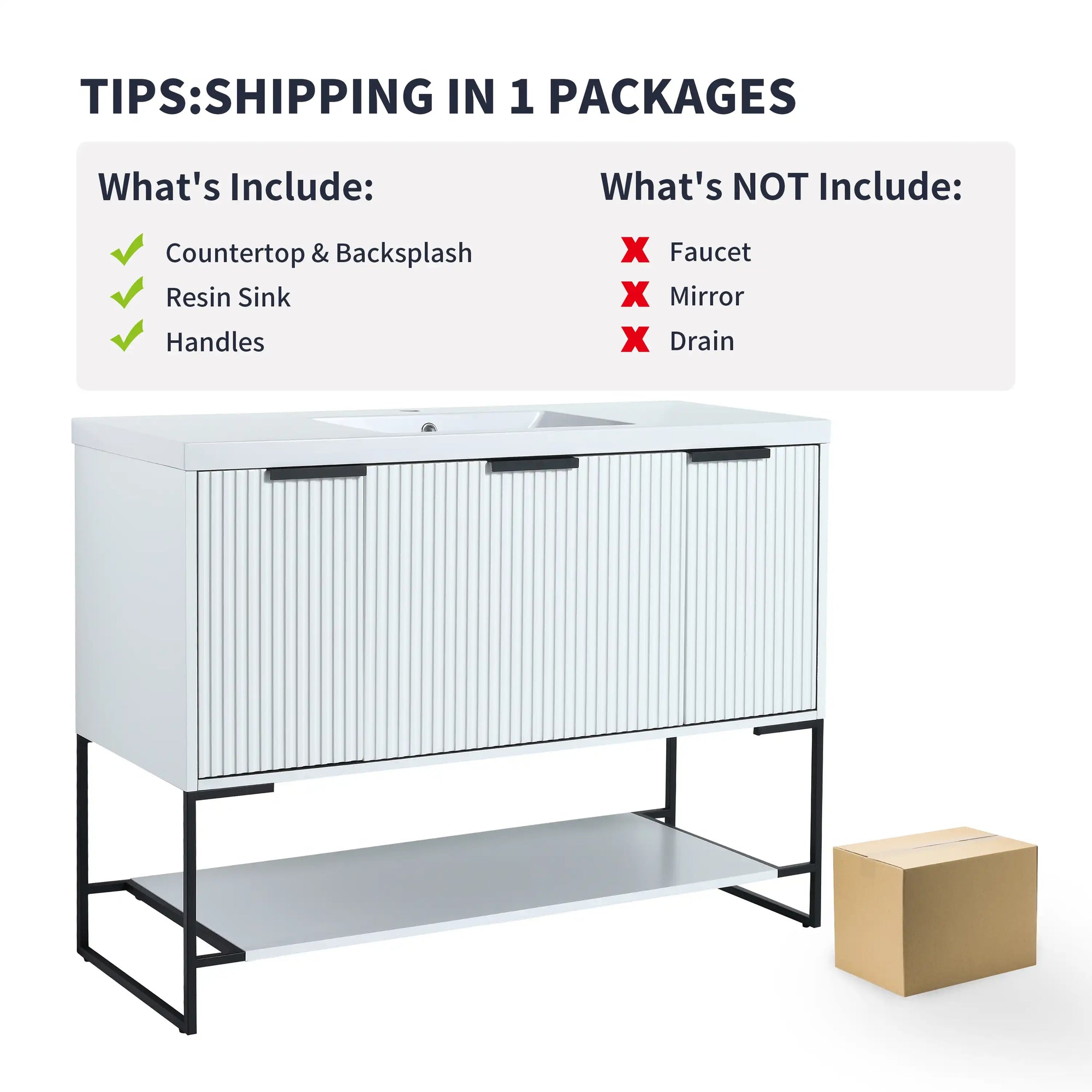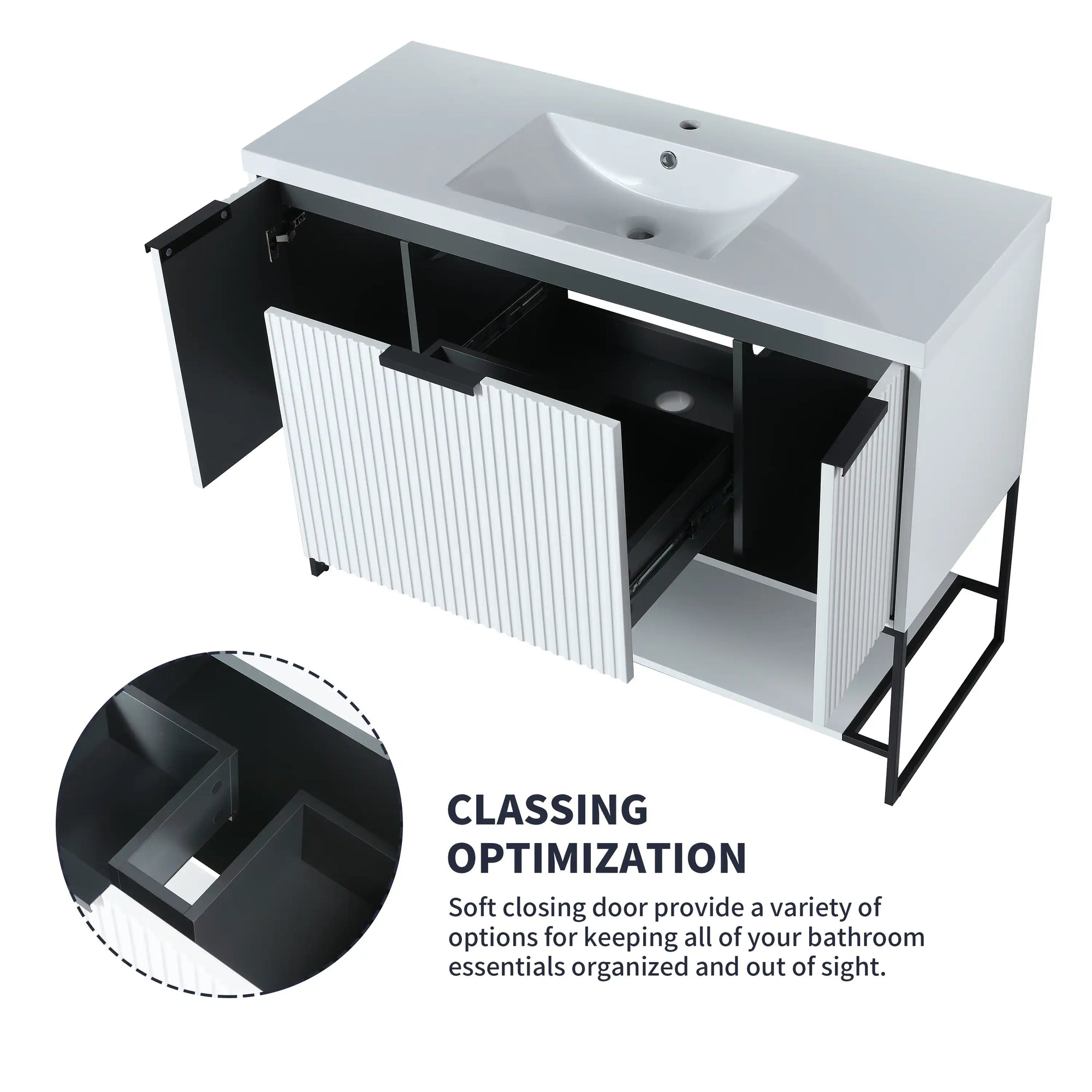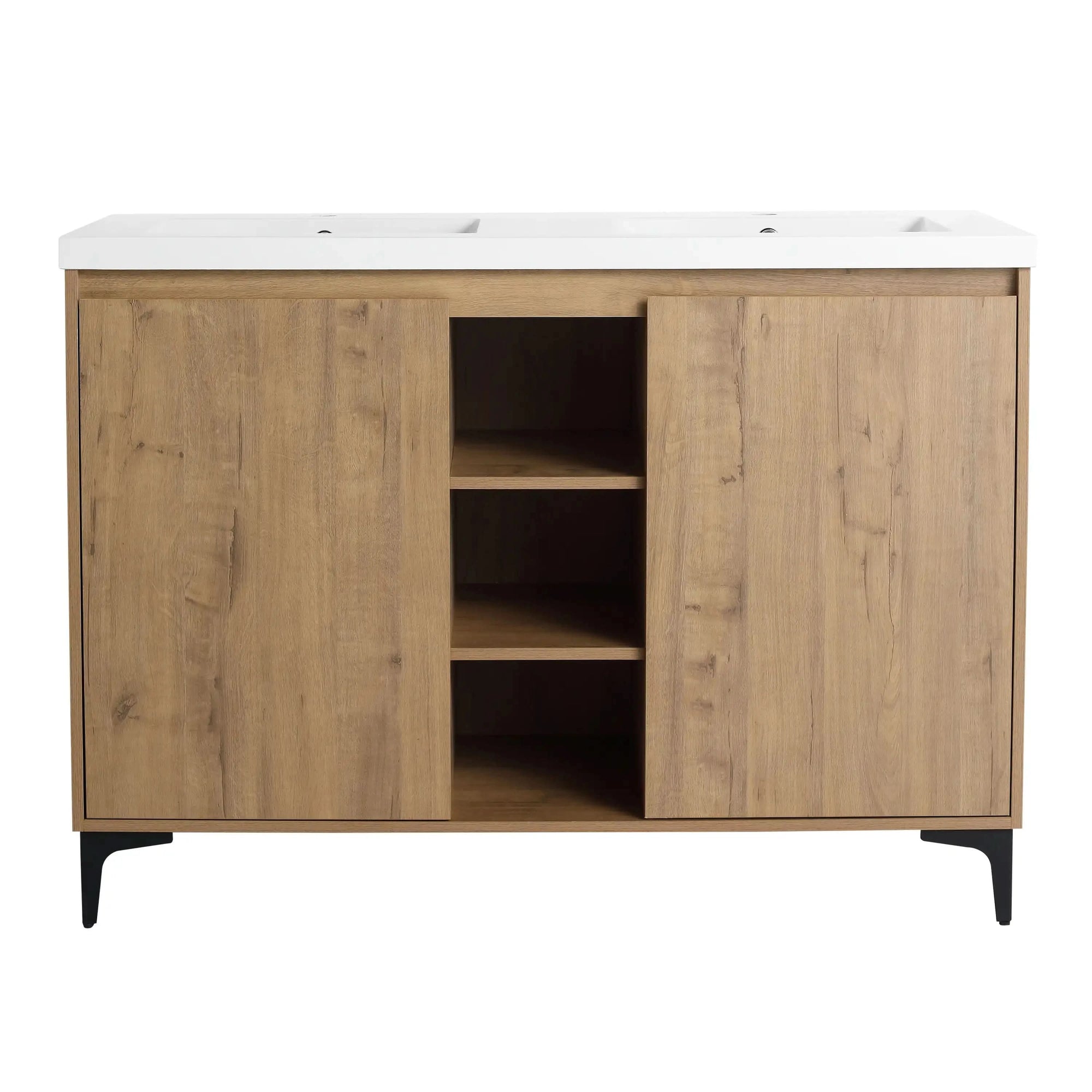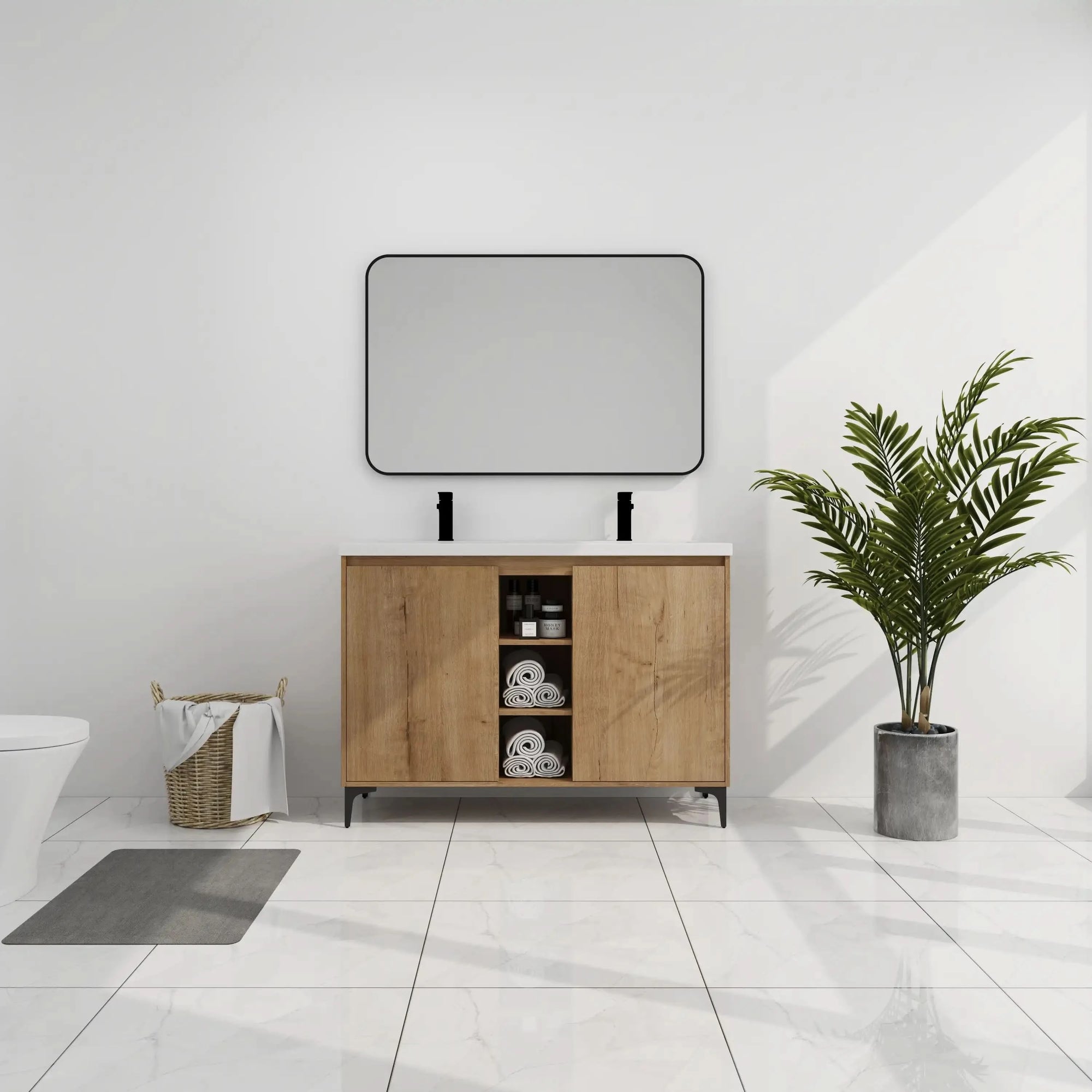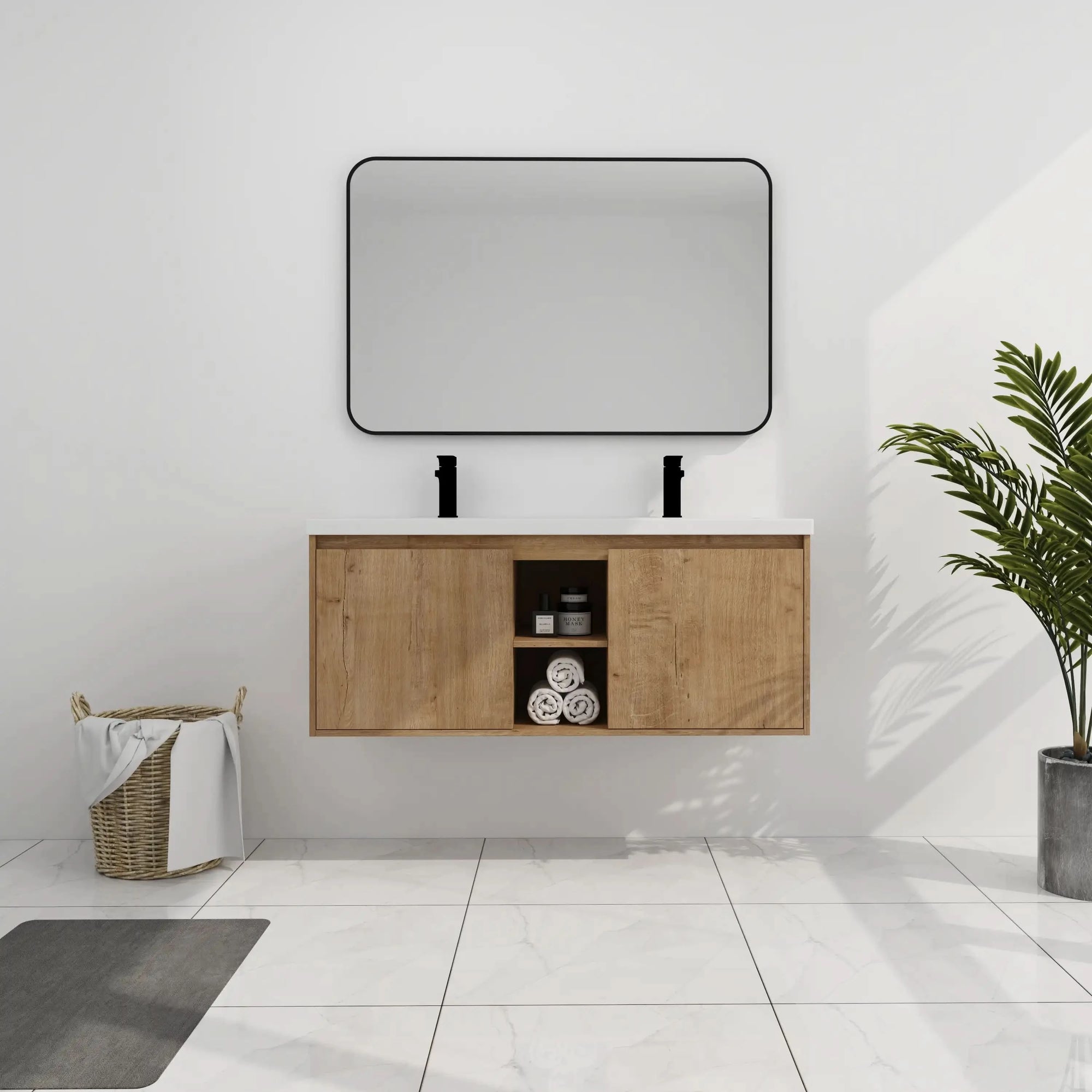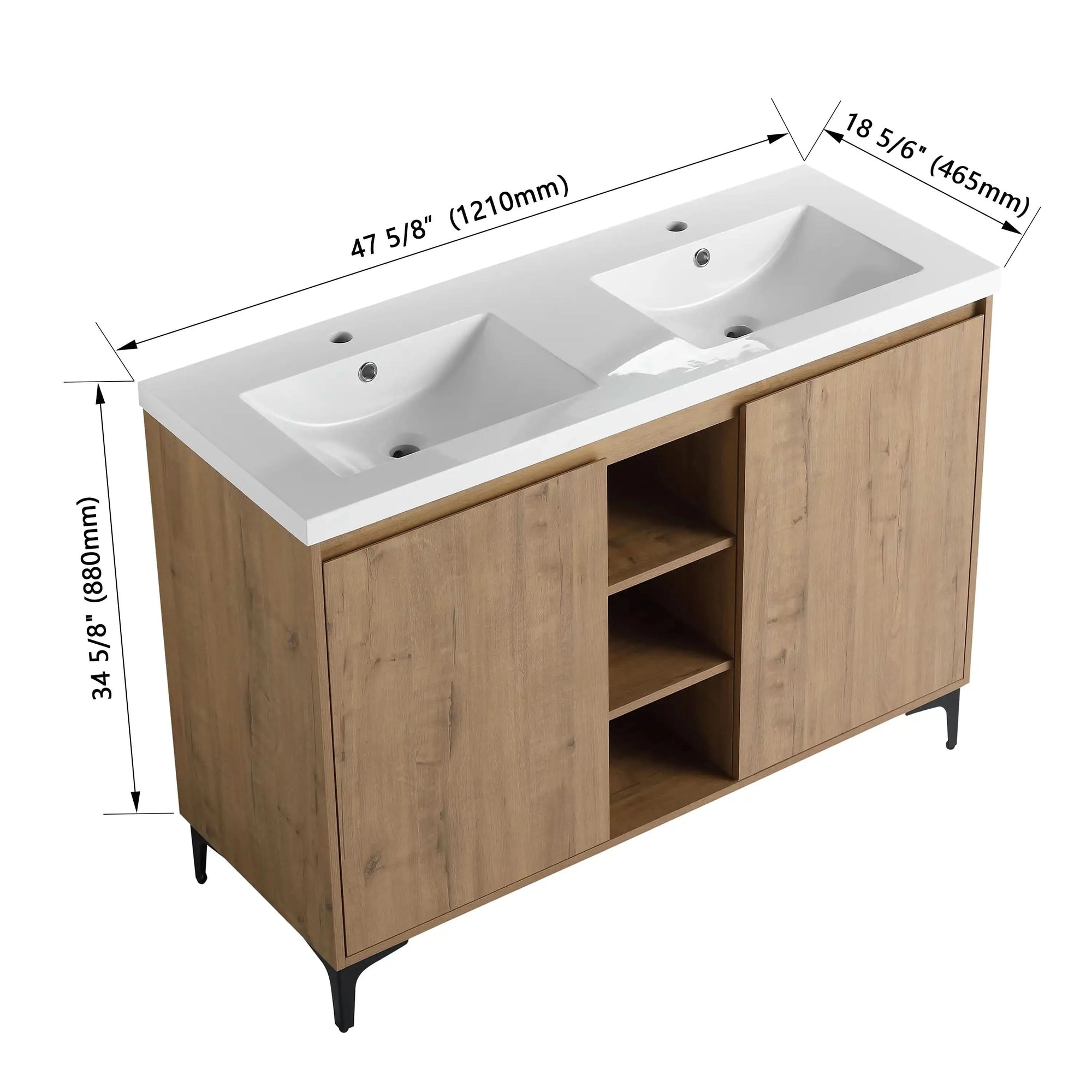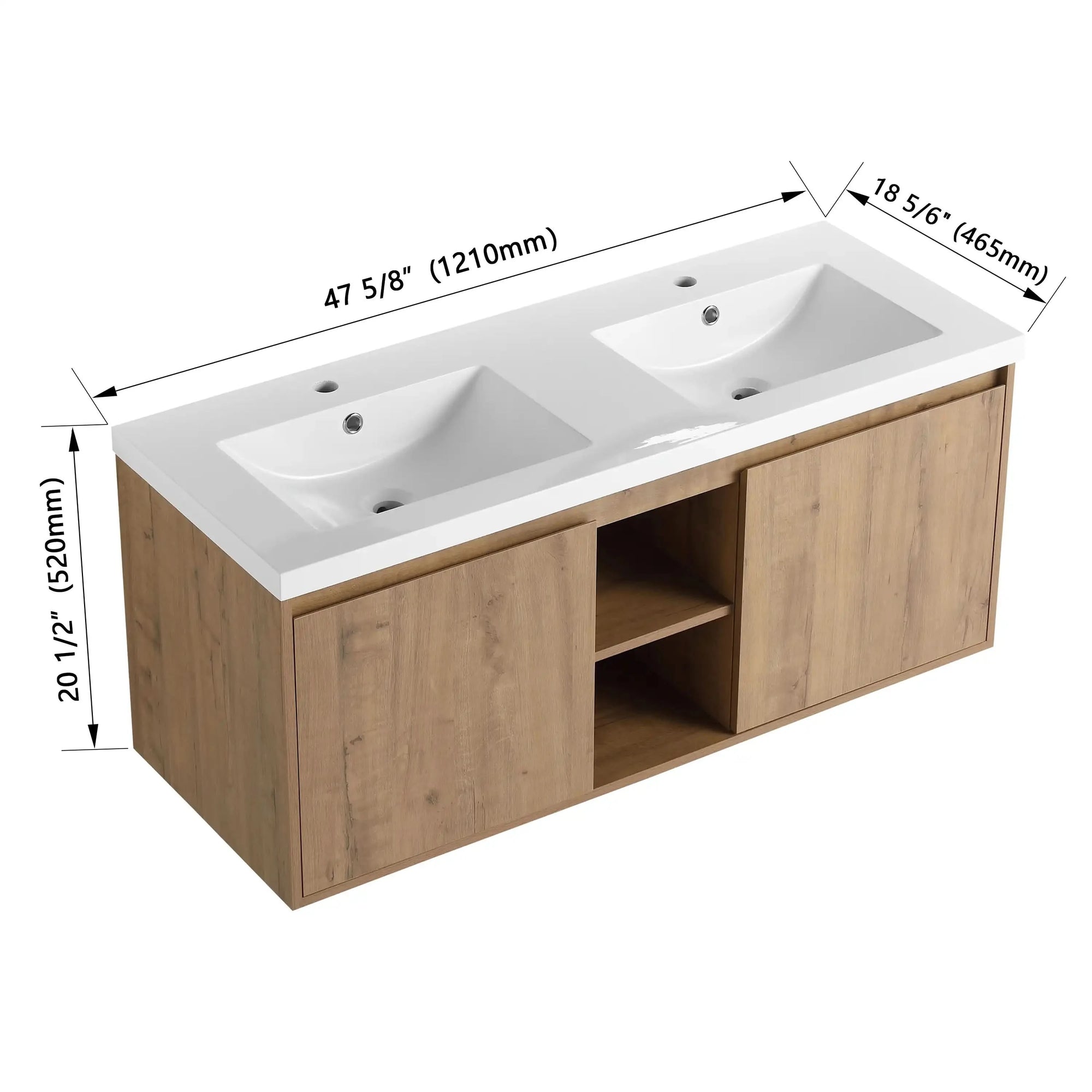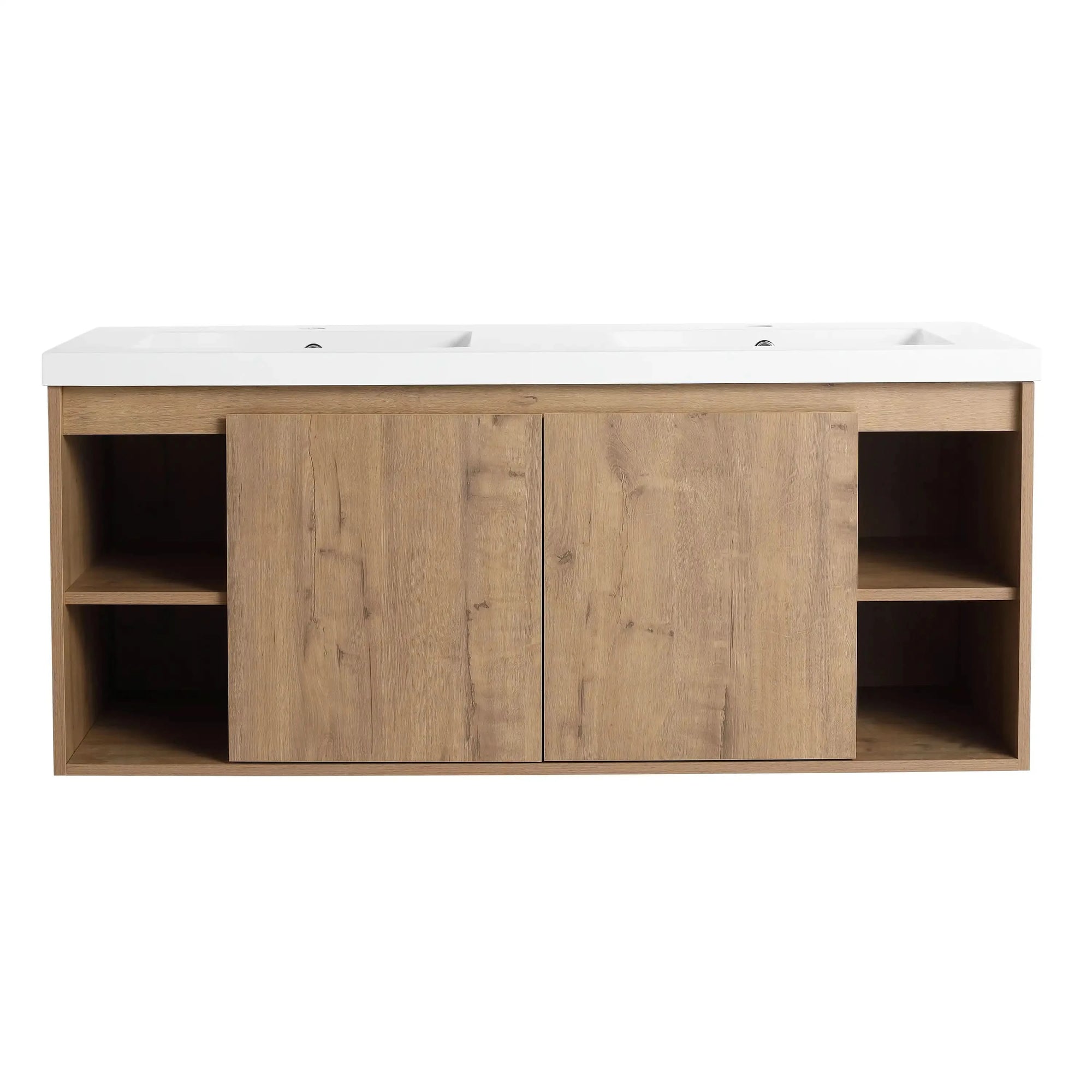Table of Contents
- Why choose a freestanding single bathroom vanity?
- What are your practical needs?
- How to choose a style that fits your space
- Why do materials matter?
- How to measure correctly
- Choosing the right sink and faucet combo
- Pairing your vanity with lighting and mirrors
- Our recommended picks from Ace Decor
- Key takeaways before you decide
- Common questions answered
- Explore more related articles
If you're in the process of designing a new bathroom with a clean, flavorful look then a freestanding single bathroom vanity with a ceramic basin is an option you should explore in further detail. The vanity you choose for your bathroom is more than just a place to store your toiletries and towels it's a nuance of your space's personality. That's why we're all about stylish bathroom ware that manages to be both practical and pretty, and in this guide we're here to help you get your head around the options for choosing a freestanding vanity that really brings something special to your bathroom.

Why Choose a Freestanding Single Bathroom Vanity?
Freestanding single bathroom vanities have several benefits in the modern home:
- Design Flexibility: Good for all sizes and styles of bathrooms.
- Ease of Installation: As opposed to wall-mounted choices, freestanding vanities can be added without changing the structure.
- Timeless Beauty: Many times these pieces have a classic shape which can go with traditional and/or transitional style.
- Easier Maintenance: It is easy to access the plumbing when the vanity is not in the wall.
Whether you are remodeling a powder room or furnishing a spacious master bath, a freestanding vanity offers a different style of sink the freedom to contribute.
Step 1: What Are Your Practical Needs?
Before opting for what's good looking when it comes to a vanity, you need to look at how you'll use it on a daily basis. Ask yourself:
- How much storage do you need?
- How big is your room?
- What is your plumbing layout?
- What will be the easiest countertop material for maintenance?
Functionalities to Take into Account
| Requirement | Suggested Vanity Feature |
|---|---|
| Compact space | Narrow width (24" to 30") with vertical storage |
| Ample storage needs | Multiple drawers or a shelf + drawer combination |
| Daily shared use | Wider top surface with divided internal storage |
| Low maintenance goals | Quartz countertop + soft-close drawers |
By assessing these factors, you will be ensuring your vanity will be tailored to your lifestyle, not just your design aesthetic.
Step 2: Choose a Style that Matches Your Space
When it comes to style, the term "modern" can mean different things depending on context. At Ace Decor, we see modern as:
- Minimalist and unadorned
- Thoughtfully constructed with clean lines
- Balanced use of natural and engineered materials
Common Modern Vanity Styles
1. Wood Vanities with Scandinavian Influence
Natural oak or ash wood finishes with slender tapered legs and flat-front drawers. Excellent for giving a touch of warmth to an all white bath.
2. Monochrome Matte Finishes
Matte lacquer vanities in charcoal, white or muted taupe with integrated handles. These look great paired with black hardware or brushed brass accents.
3. Freestanding Designs with the Appearance of a Floating-Look
Stand alone but is higher than average to ensure no slipping when stacked the effect is floating without a whole wall mount installation.
4. Stone-Countertop Simplicity
This marble or engineered quartz counter over a pair of well-balanced bare legs easily adds refinement to a lackluster vanity.

Step 3: Materials Matter
Durability is just as important as design. Bathroom is a high humidity environment, which is why you need a durable material to build a vanity.
Material Comparison Table
| Component | Recommended Material | Considerations |
|---|---|---|
| Base Cabinet | Solid wood or plywood with veneer | Avoid MDF in very humid bathrooms |
| Countertop | Quartz, porcelain, or marble | Quartz is most resistant to staining |
| Hardware | Stainless steel, aluminum, brass | Choose corrosion-resistant finishes |
| Sink | Ceramic, stone resin | Easy to clean, resists discoloration |
Opt for vanities with a sealed finish, particularly for wood bases. Solid drawers have metal glides and soft-close functionality.
Step 4: Measure Up
Be sure to measure the following when purchasing:
- Total available wall width
- Check depth of drawers/doors
- Sink height for ergonomic comfort
- Plumbing locations (to avoid costly adjustments)
Typical freestanding single bathroom vanity sizes range from 24 to 48 inches wide. Smaller spaces benefit from 24–30" models, while 36–42" vanities suit most main bathrooms. For a truly luxurious single-sink look, 48" can offer generous counter space without the need for a double sink.
Step 5: Select a Sink & Faucet Combo
Not only should your sink and faucet reflect your personal design tastes, but they should also be compatible with the limited space.
Sink Types
- Undermount Sink: Sleek and minimal, it frees up counter space.
- Integrated Sink: One piece, seamless and easy to clean.
- Vessel Sink: Sits above the counter, provides sculptural element but a significant arrange of difference in height.
Faucet Placement
Make the sure faucet height and reach work for your sink shape. Wall-mounted faucets are also fine with freestanding vanities, and a cleaner look.

Lighting & Mirror Pairing
To finish the look, combine your freestanding vanity with:
- A mirror (ideally not wider than the vanity)
- Vertical sconces on either side or a horizontal light above
- Neutral lighting temperature (around 3000K) for beautiful skin tones
Lighting isn't just for looks — it impacts function when it comes to hair, makeup, and/or skincare routines.
Featured Picks from Ace Decor
Step right this way for some of our most popular freestanding single bathroom vanities, all engineered for the clean, contemporary life:
All our products represent our emphasis on balance, simplicity and ease of use.
Final Thoughts
Choosing the best freestanding single bathroom vanity is not a simple one answer for all. It's a matter of matching design with practicality, and style with substance. Whether you're looking to create a relaxing spa feel, a visual getaway, or just preserve a timeless atmosphere, the right bathroom vanity can be the finishing touch that makes any space a seamless extension of your home's personal style.
At Ace Decor, we offer help to make decisions that look beautiful now—and that you'll still love in ten years. Good design starts with good materials, thoughtful form, and a thorough understanding of your needs.
If you're starting out on your bathroom remodel journey or need a design to make a statement, take a look at our selection of modern freestanding single bathroom vanities online or come by our showroom.
Because that clean, contemporary bathroom you're imagining? It starts right here.
FAQ Time
1. Can I put a freestanding single sink bathroom vanity over top of existing floor tile?
In most instances, yes, you can install a pedestal lav over tile flooring (given that the floor is flat and in good condition). It's a popular method in renovations to minimize tearful and also to maintain the new finishing. But even if the floor is not even or if it has different grout lines, it's a good idea to get this added support in place to. When in doubt, seek professional opinion for further shimming or leveling procedures.
2. How can I stop water damage to the bottom of a freestanding vanity?
Avoiding water damage begins with using a vanity constructed from water-resistant materials, but your care habits also make a big difference. We suggest using a small, low-profile bath mat in front of the vanity, and wiping up spilled water immediately. If you're extra concerned, you might add a silicone bead or line of clear caulk around the base perimeter—especially in high-use or children's bathrooms. Some of our Ace Decor vanities also feature elevated bases, or tapered legs which can reduce risk of direct water damage to the flooring.
3. What kind of wall protection do I need behind the vanity?
Although the vanity itself is freestanding, the wall behind it could still use some extra coverage — particularly around the sink. An uncomplicated quartz, tile, or tempered glass backsplash can help protect against splashes and staining. If your desired look is sleek and minimal, a 4-inch integrated backsplash provides discreet protection without obstructing the line of sight. On the other hand, full-height wall tiles or wipeable water-resistant paint make for a fresh clean modern background.
Related Articles
Discover more real-life tips and curated inspiration for creating a bathroom that's both modern and compassionate to your lifestyle.
- "Top 5 Antique Bathroom Vanity Cabinet Styles for a Retro American Look"
- "How a Tall Bathroom Storage Cabinet Built In Saves the Day"
- "Recessed Medicine Cabinet With Mirror vs. Traditional Cabinets"
- "Should Bathroom Cabinets Be Darker or Lighter Than Walls?"
- "PVC Cabinet for Bathroom vs Solid Wood: How to Make the Right Choice?"



